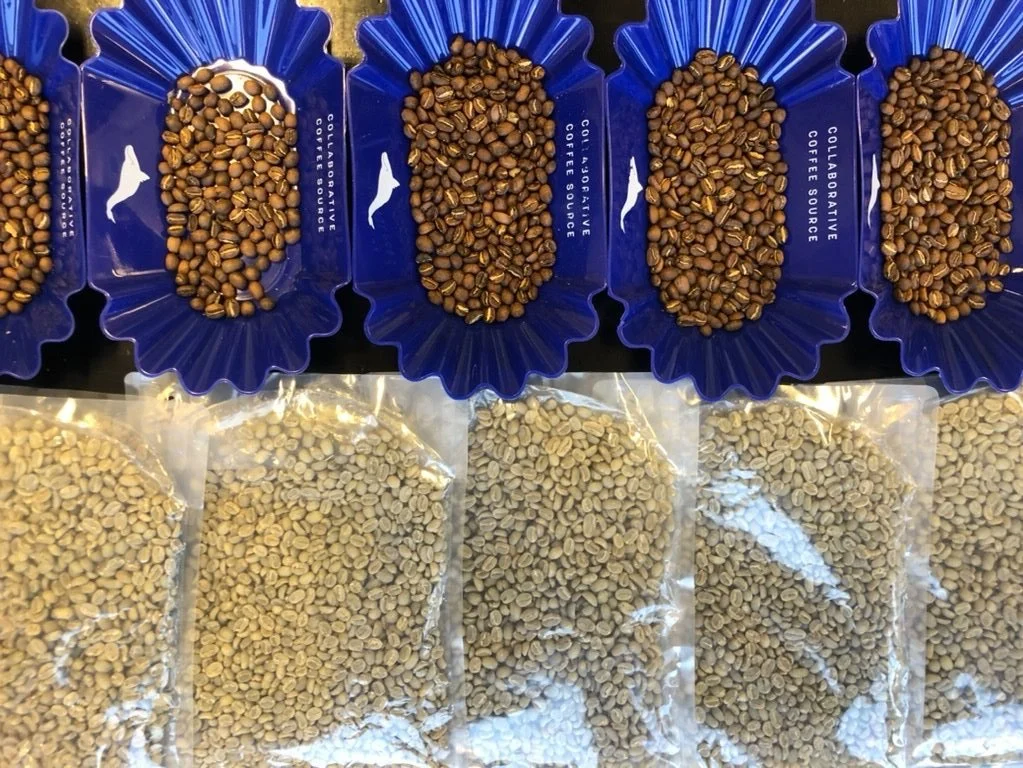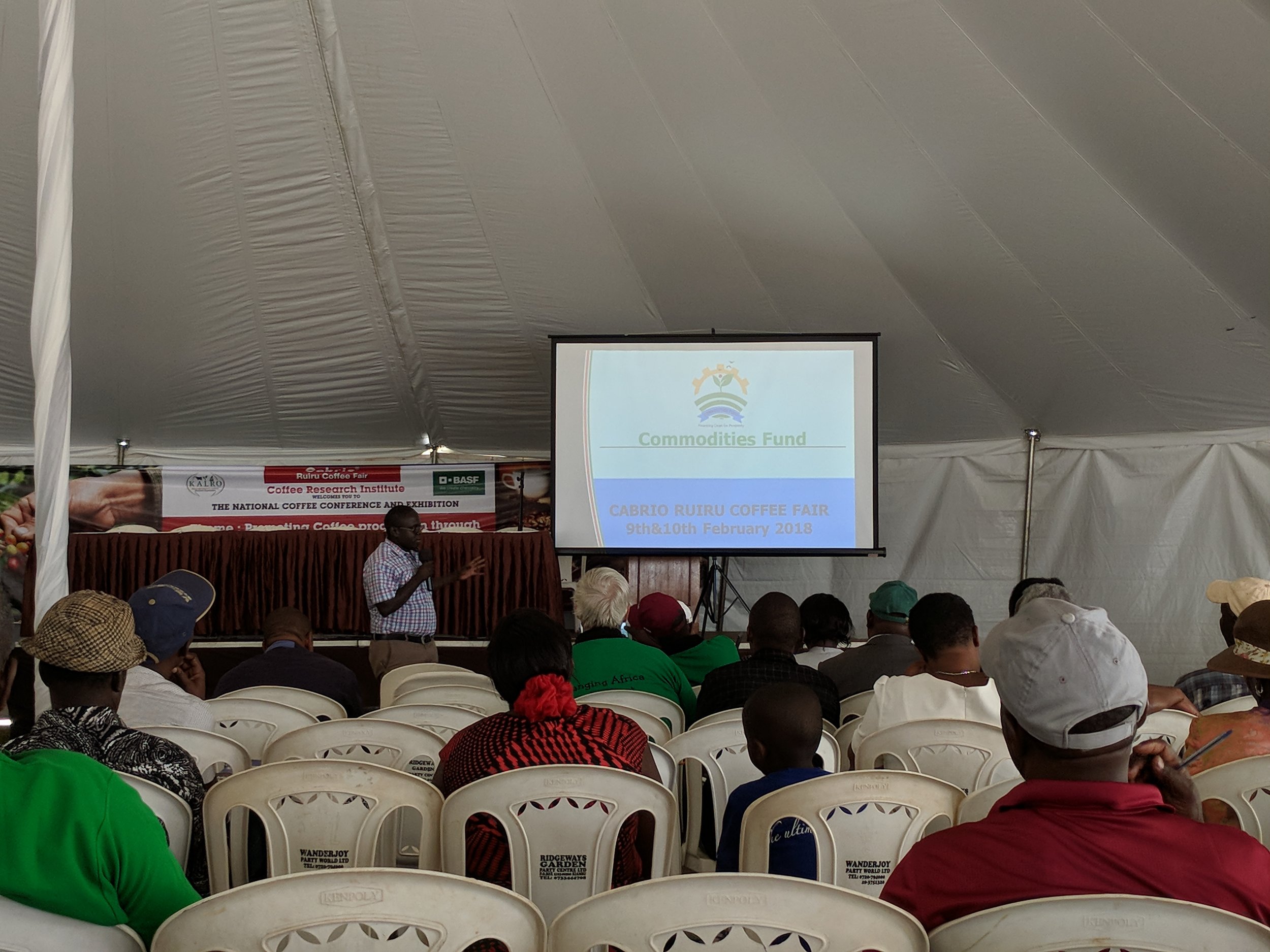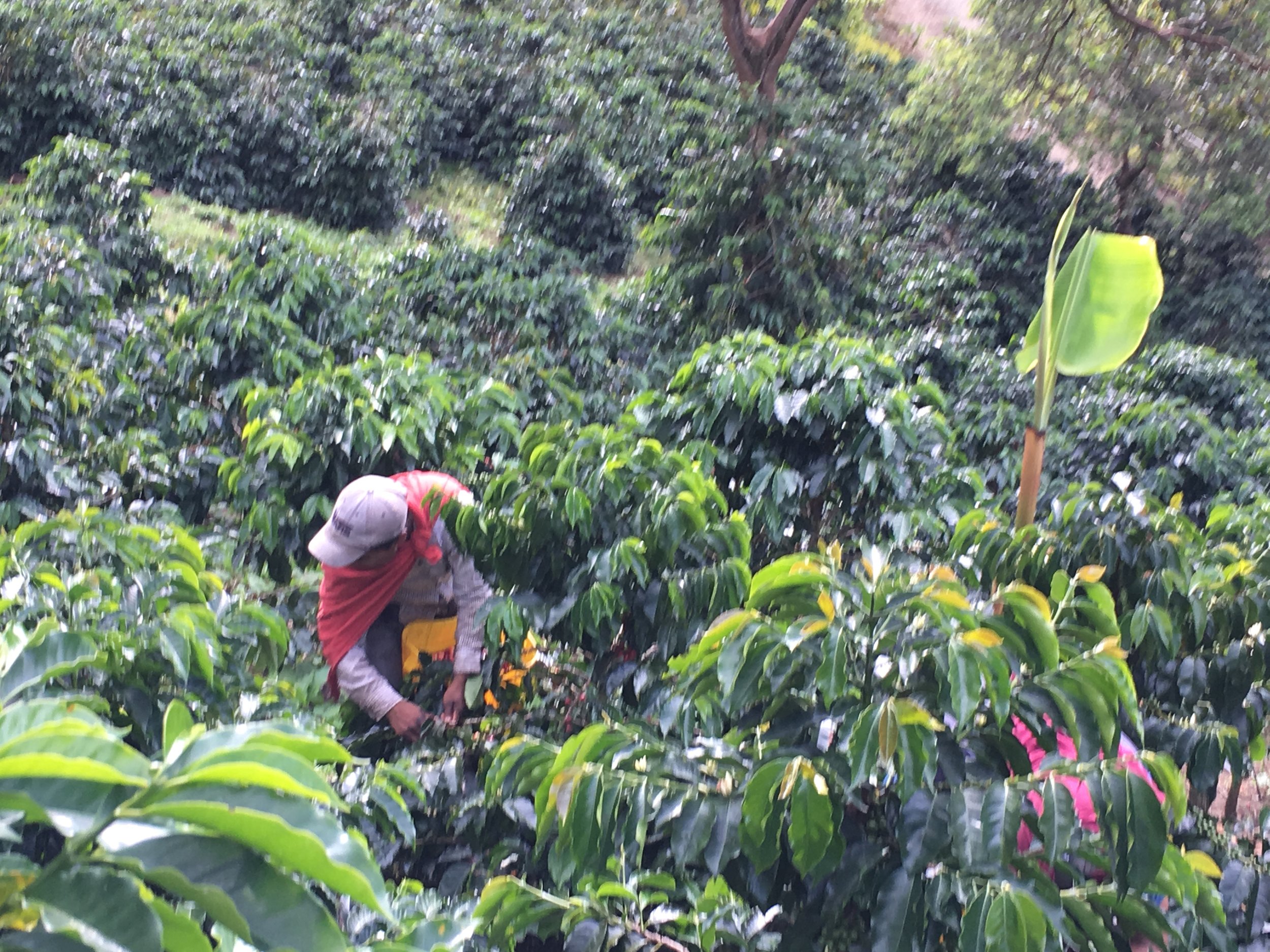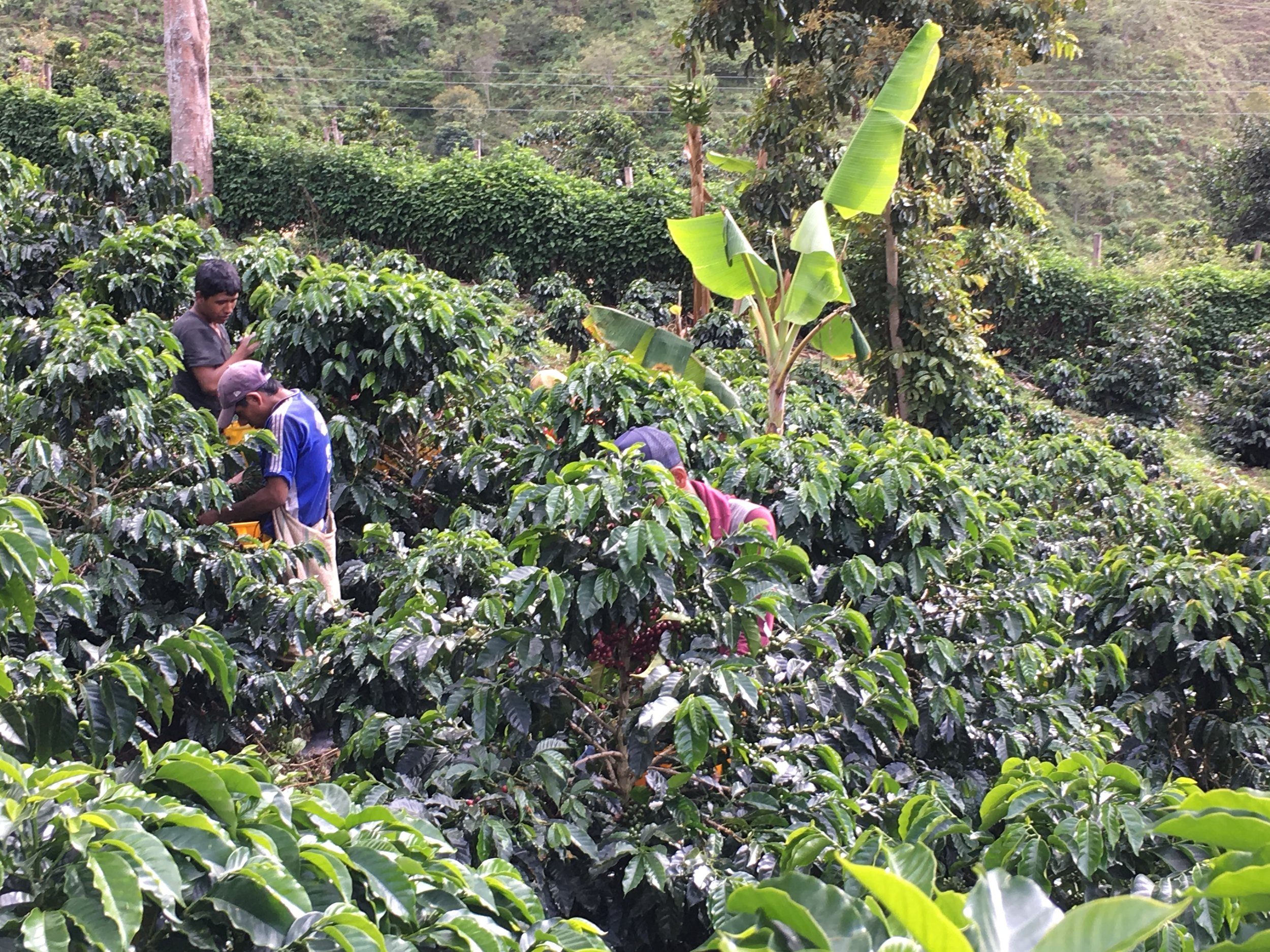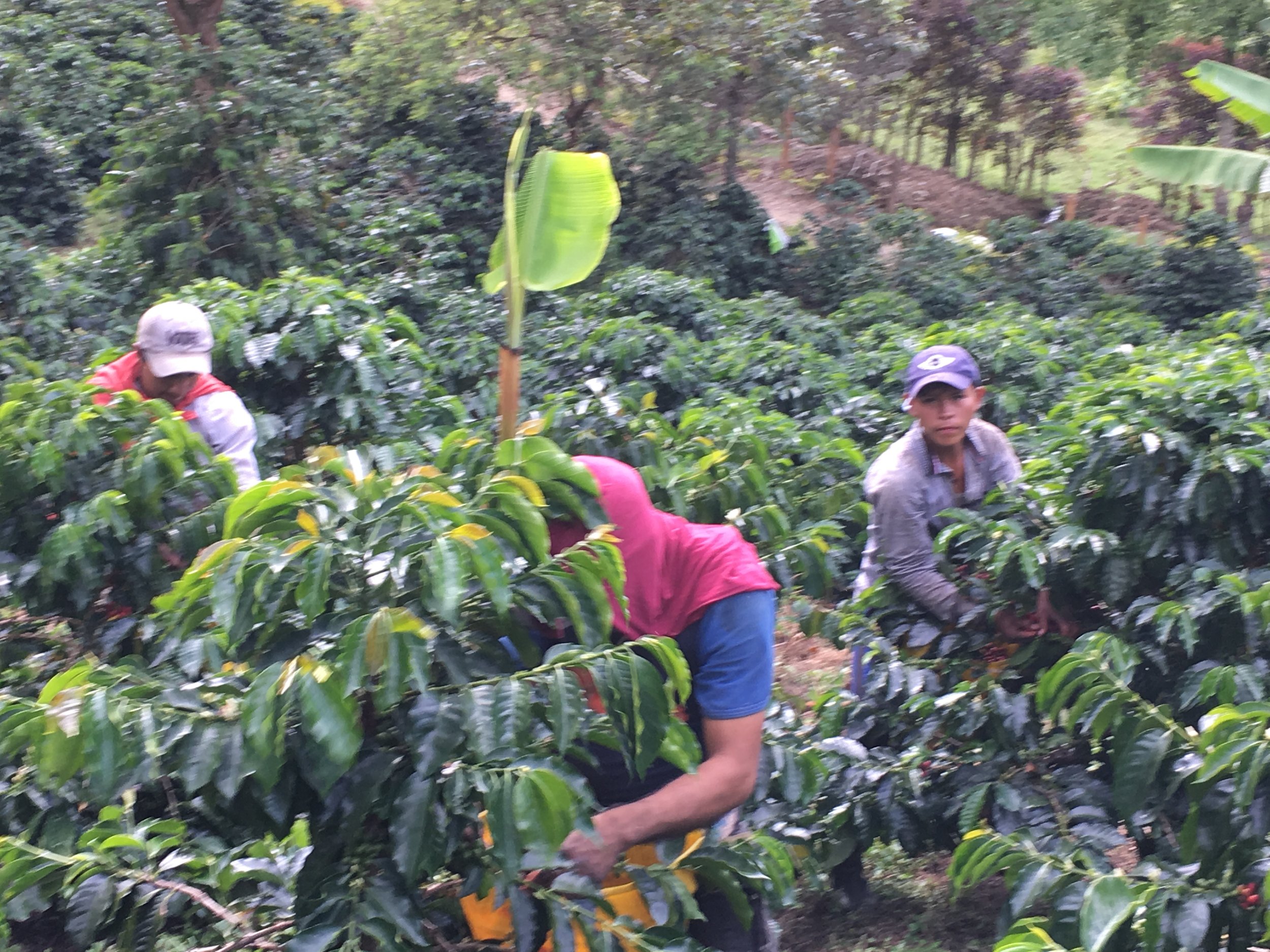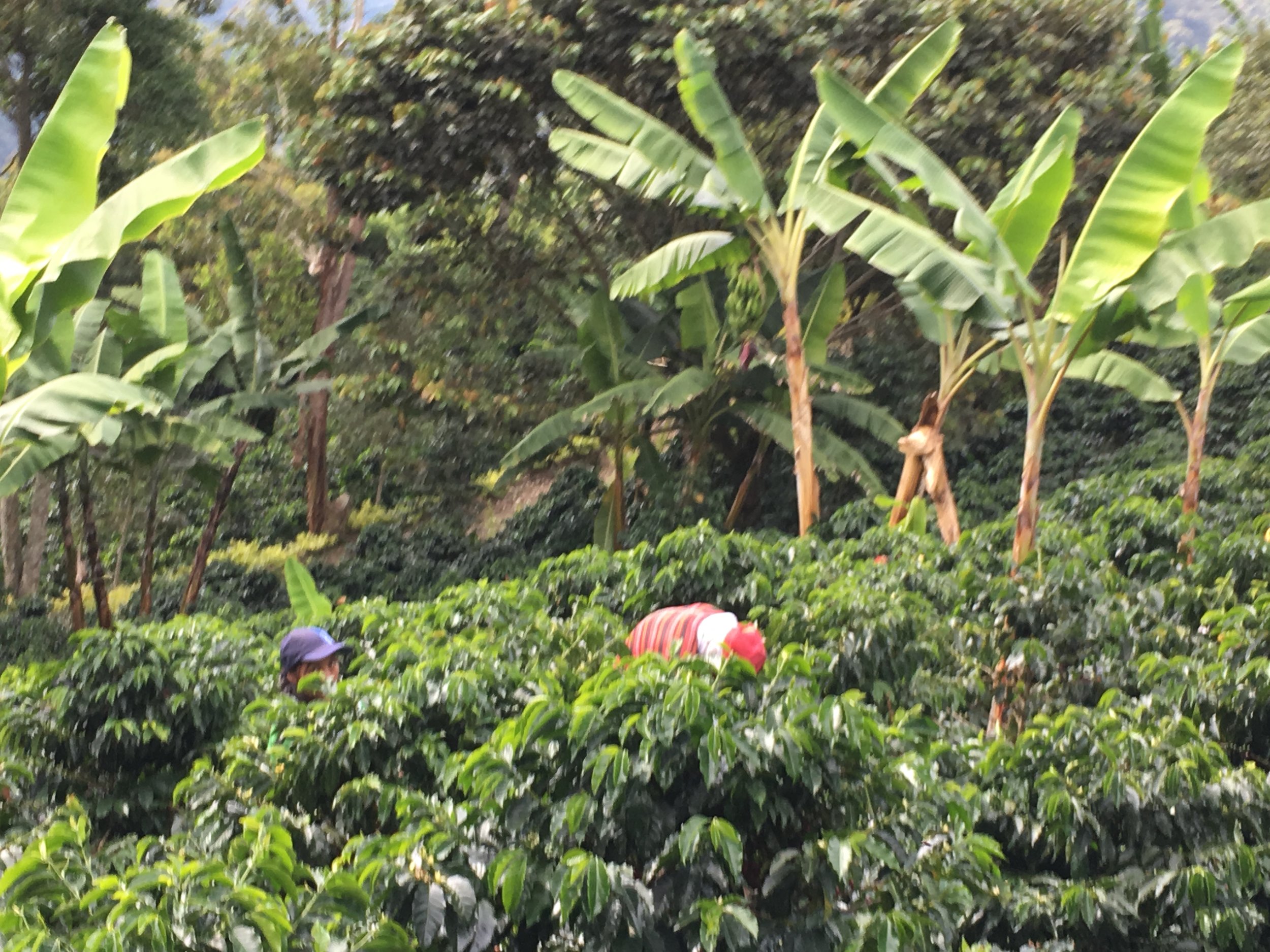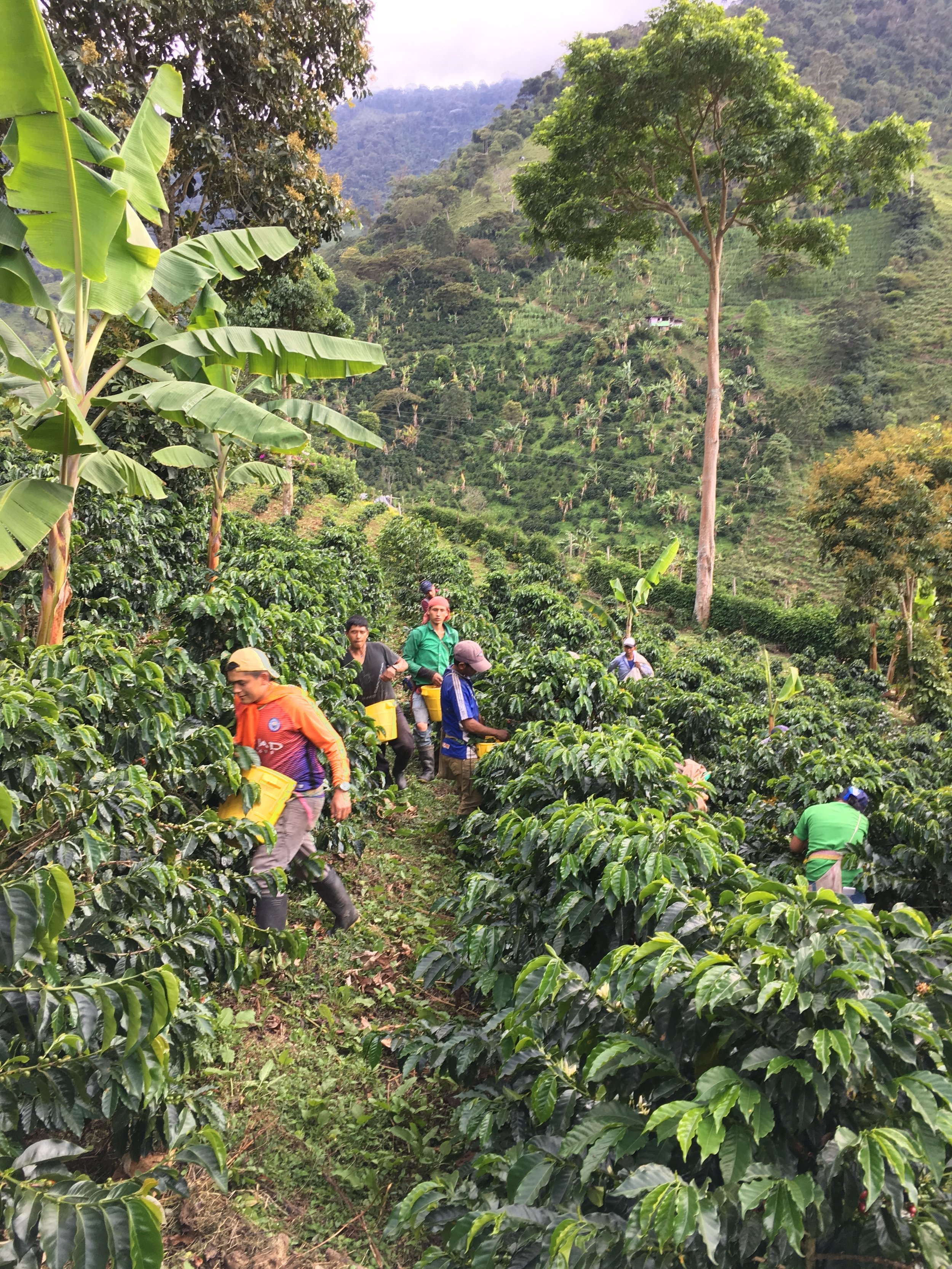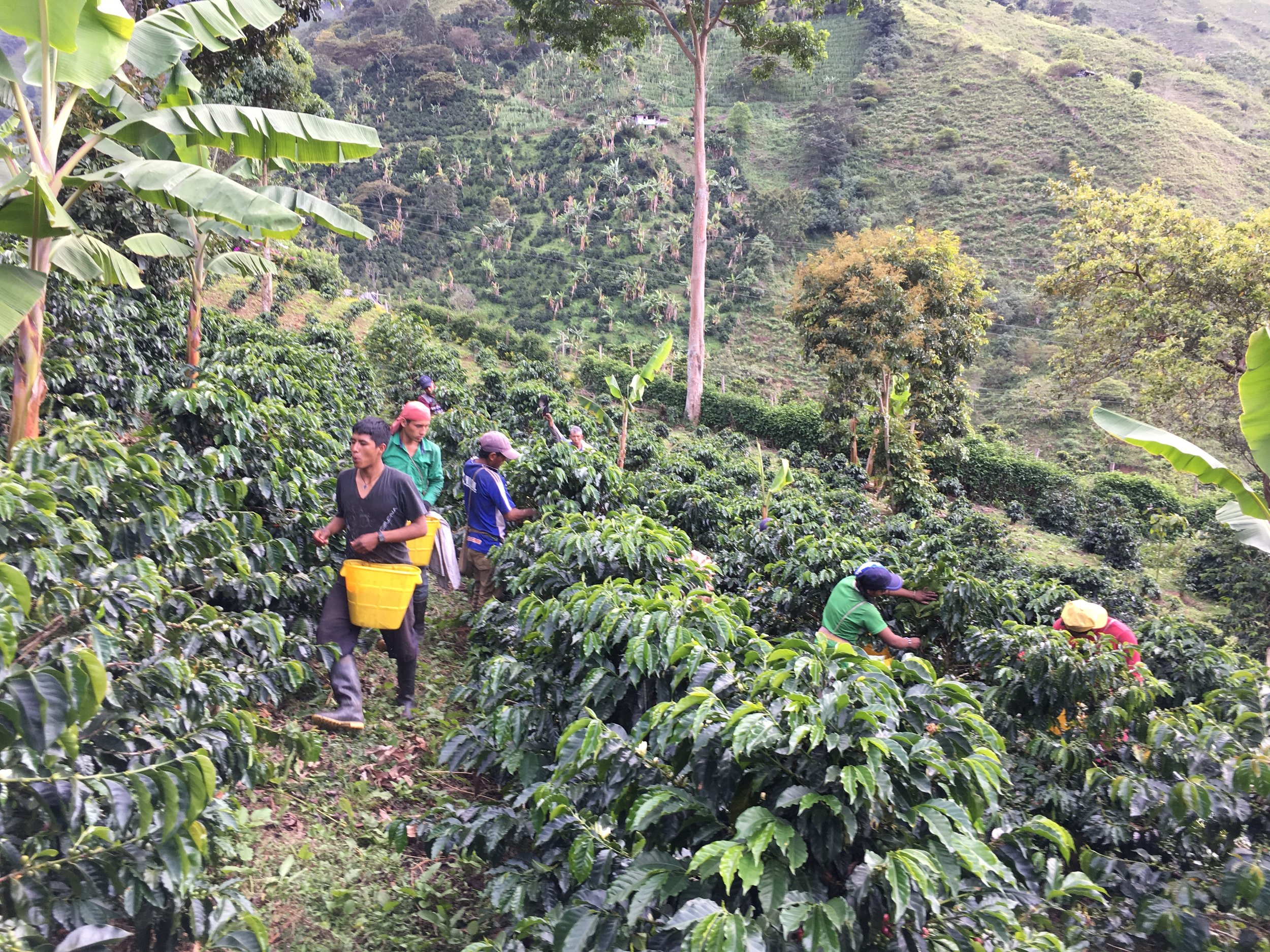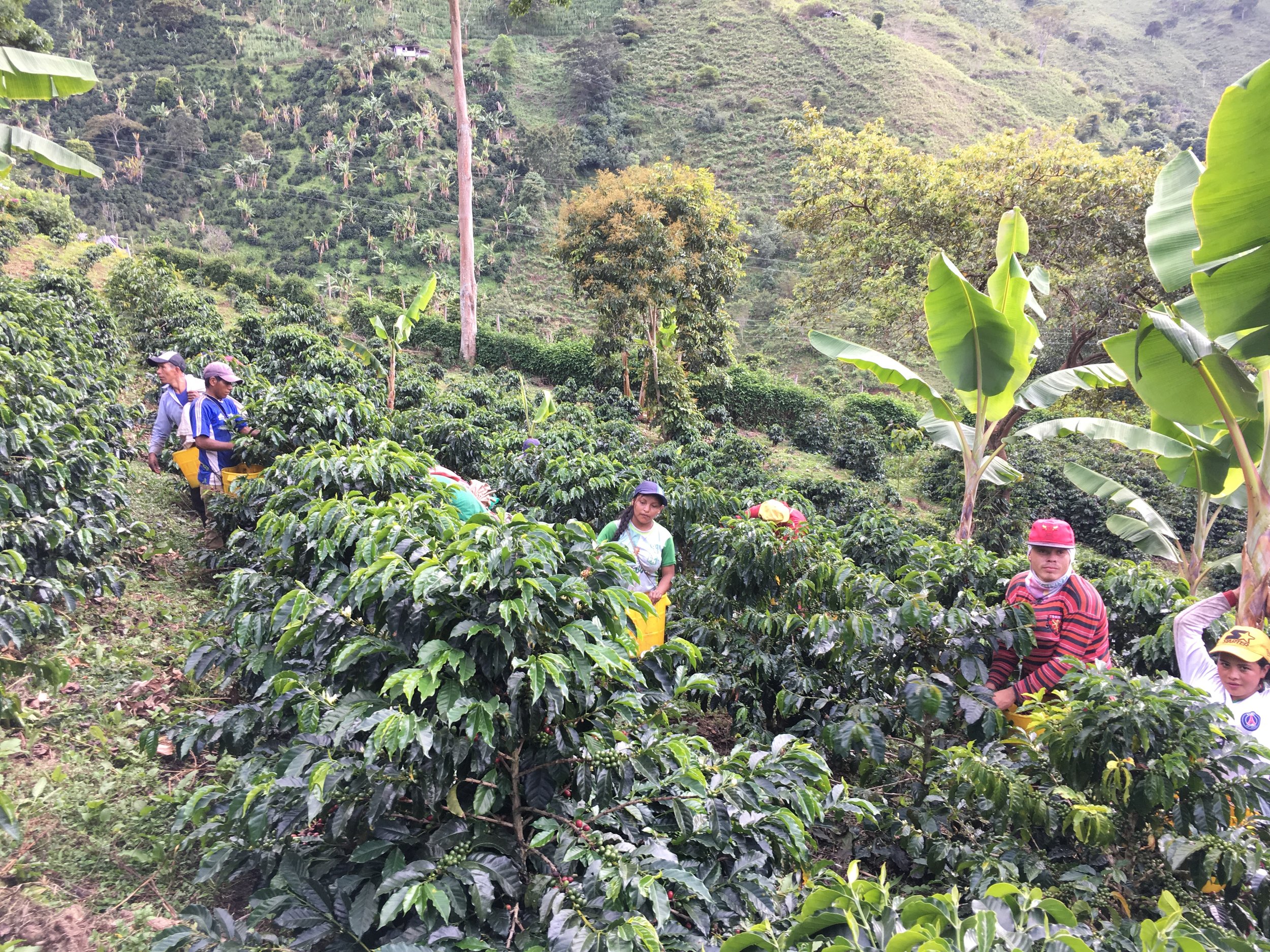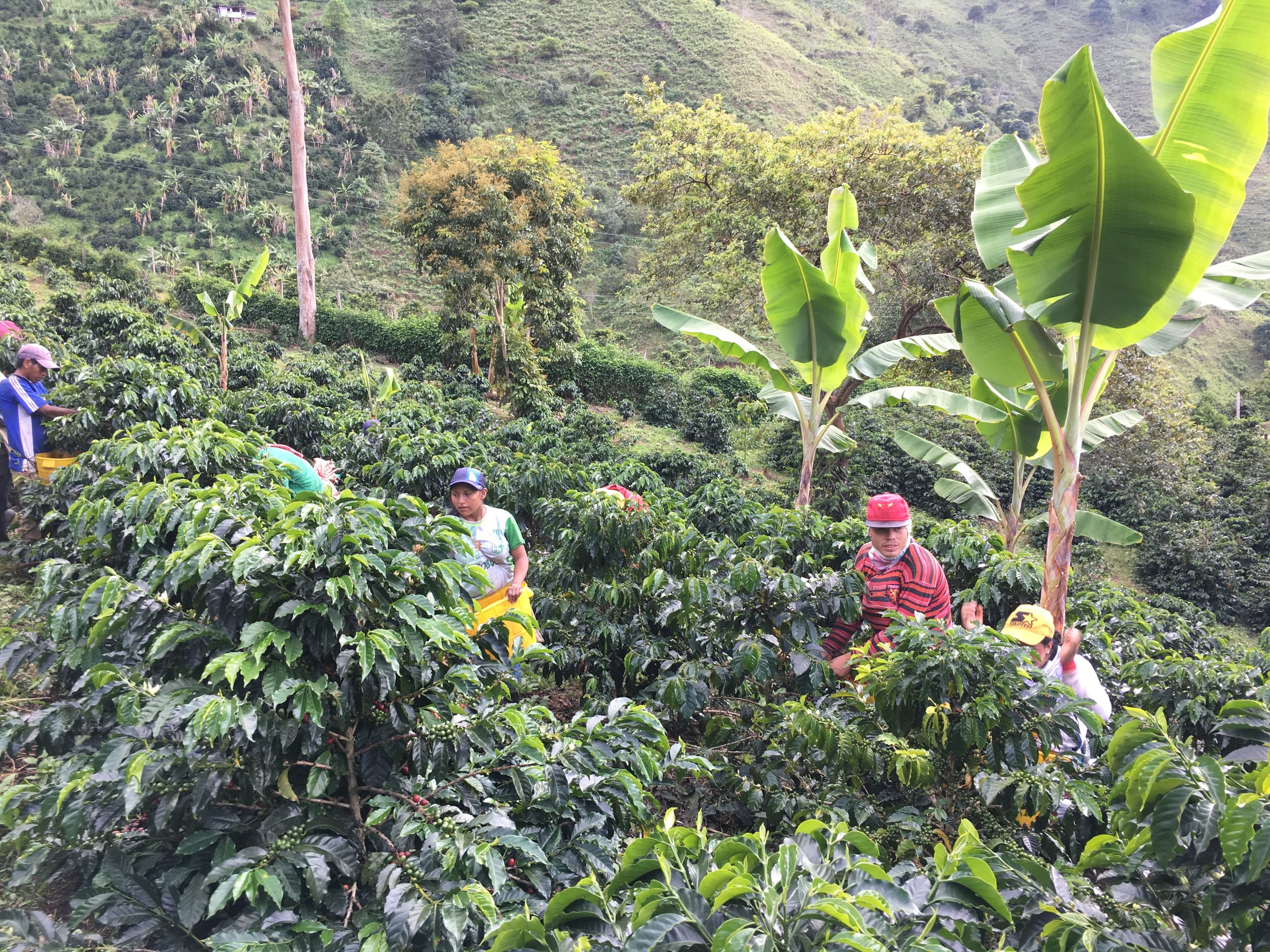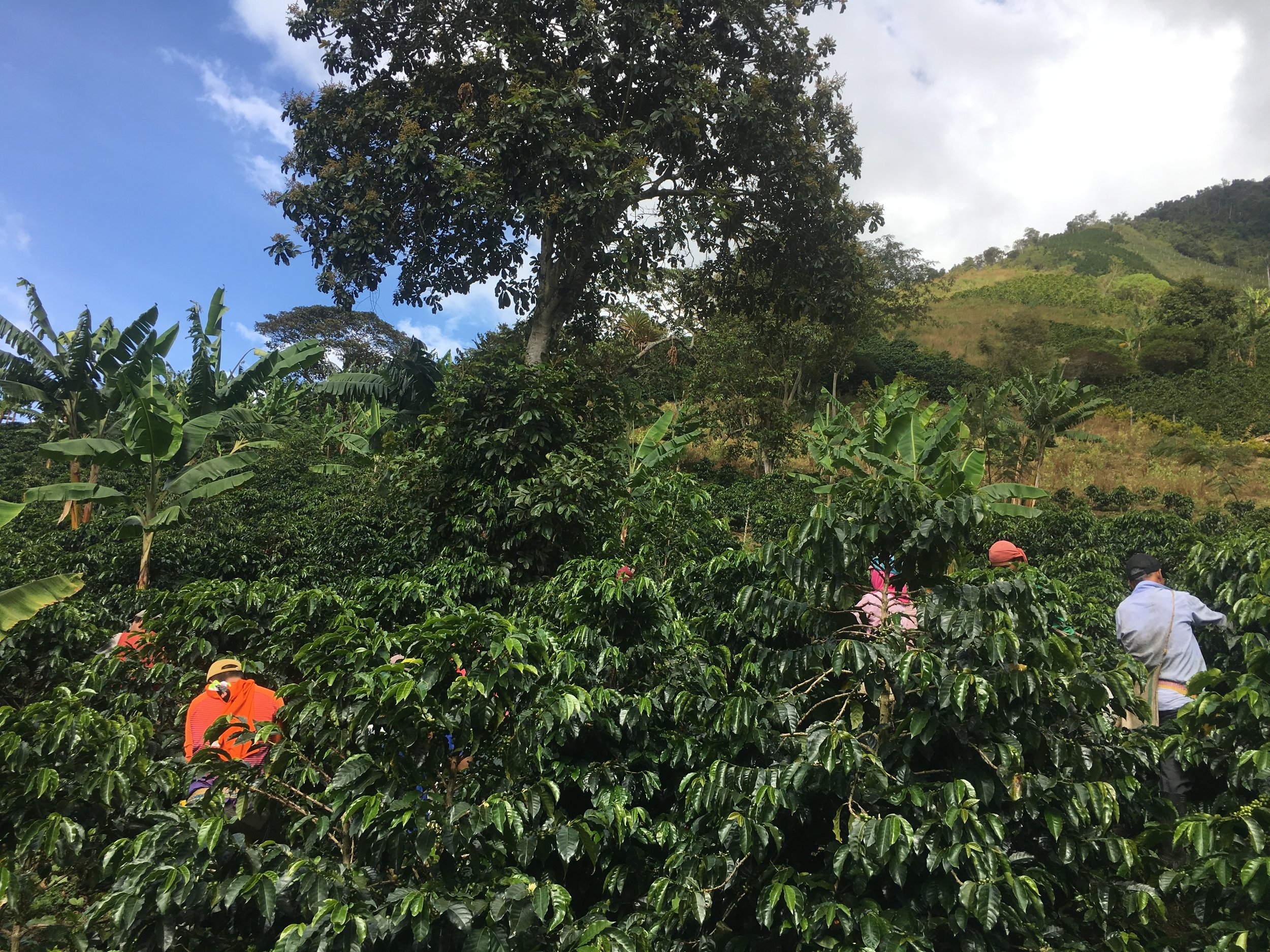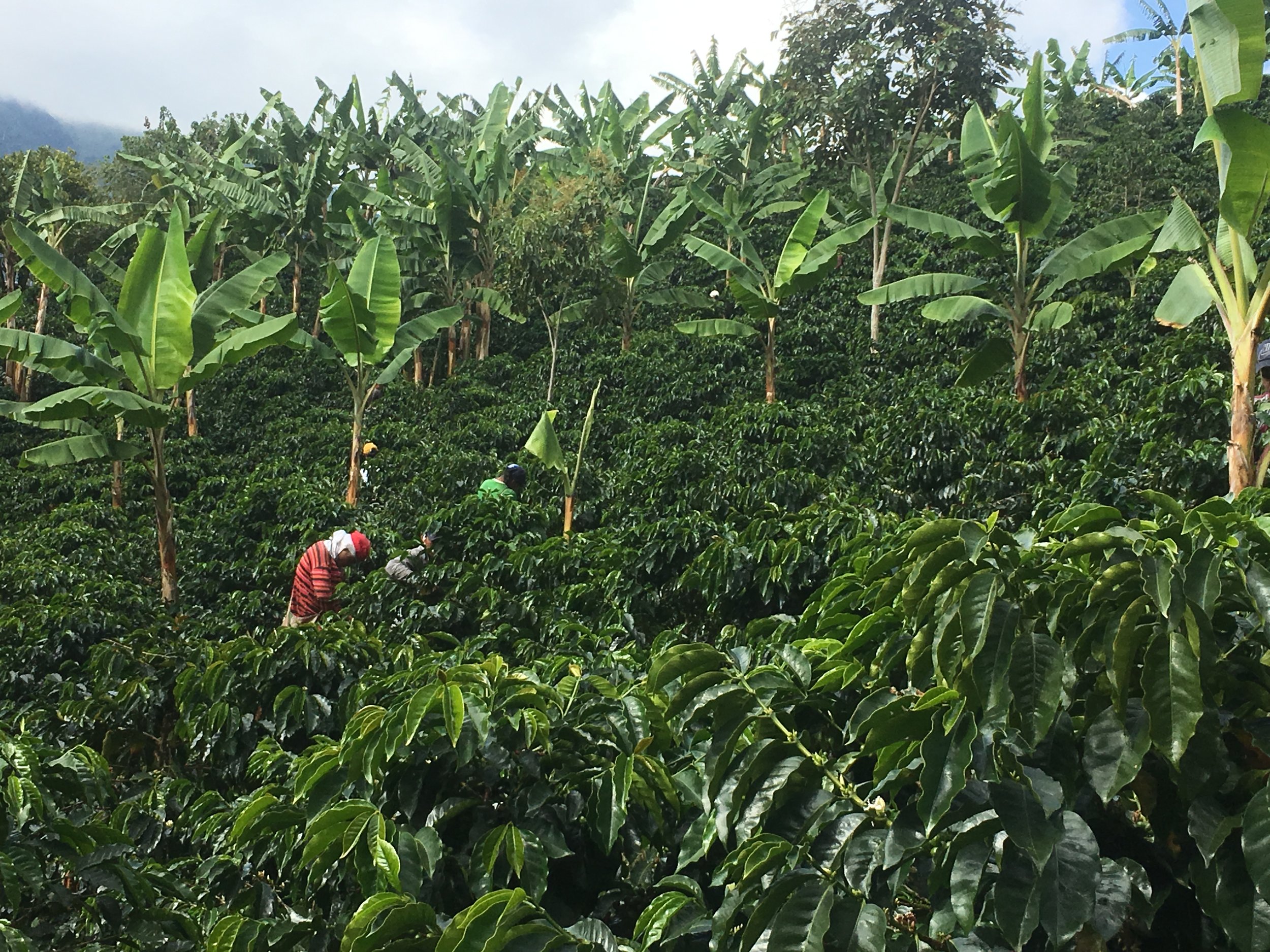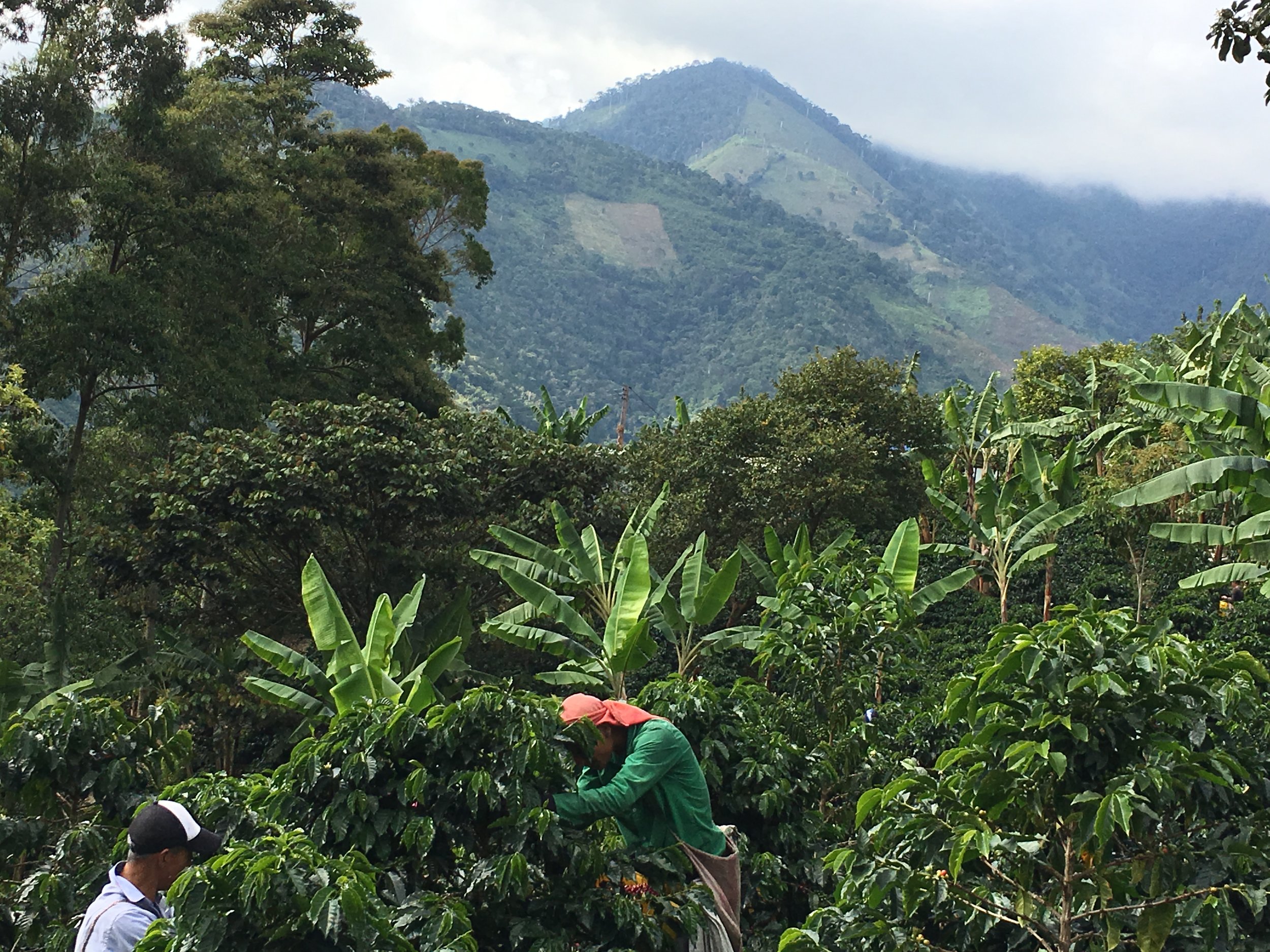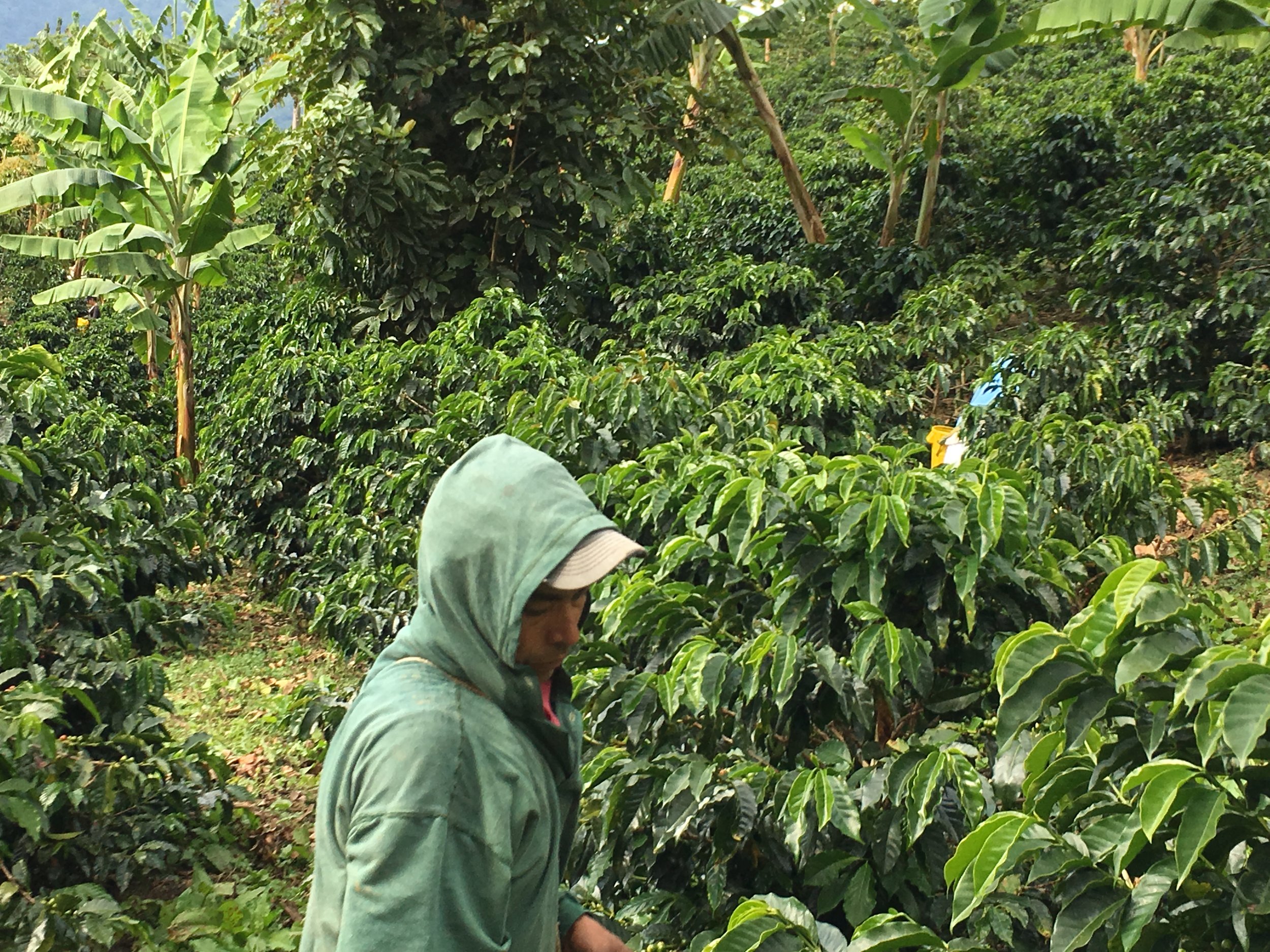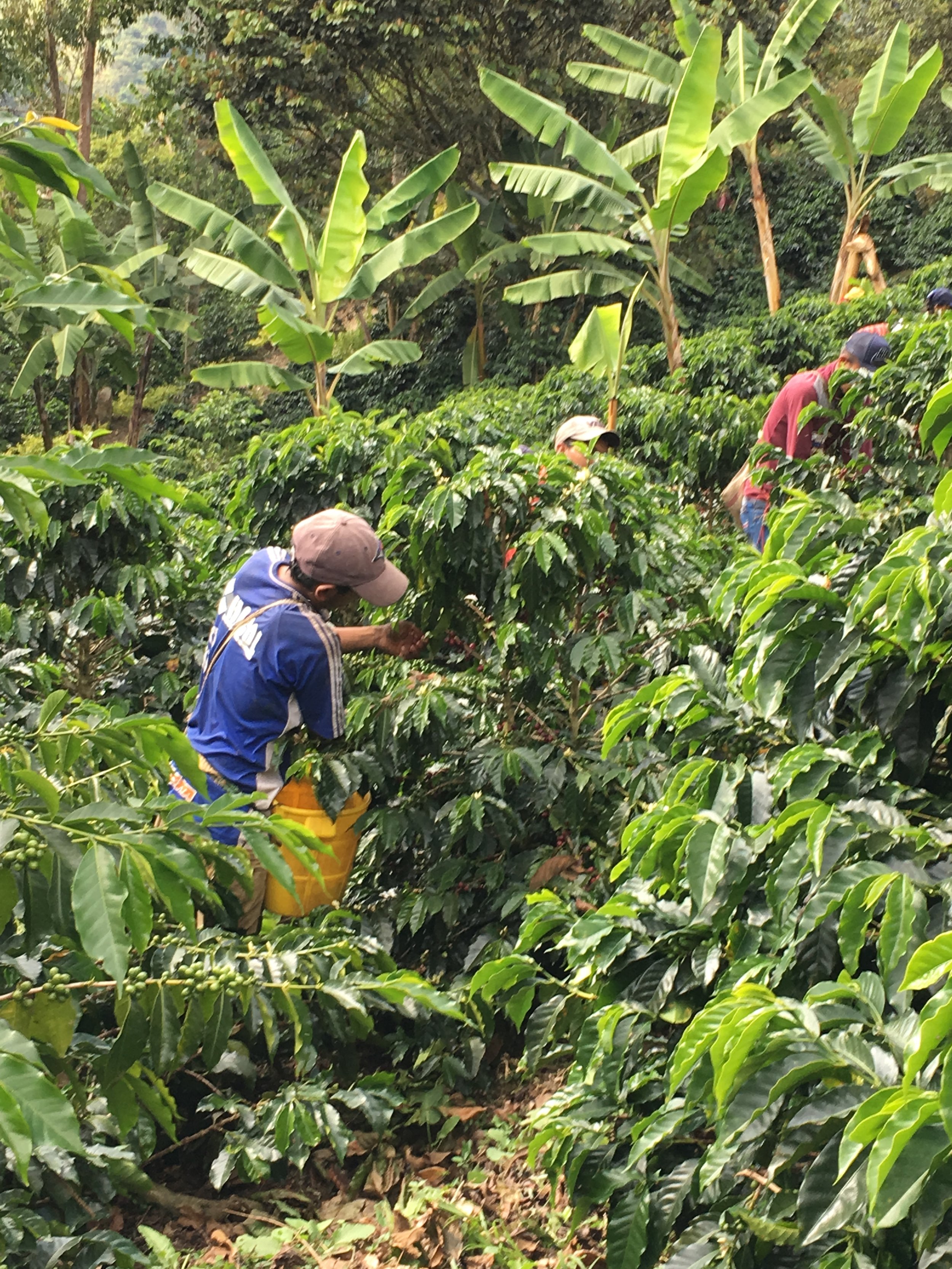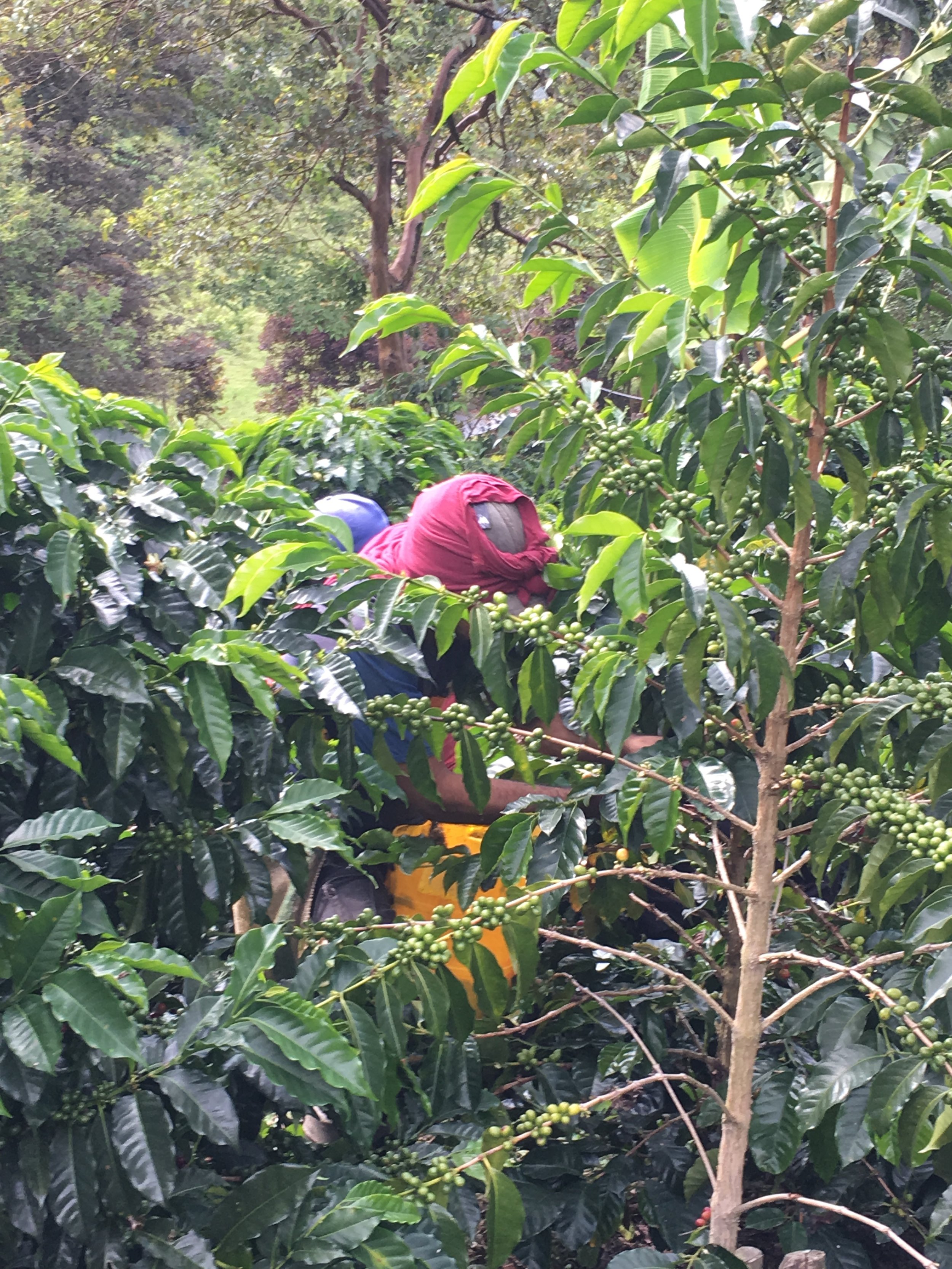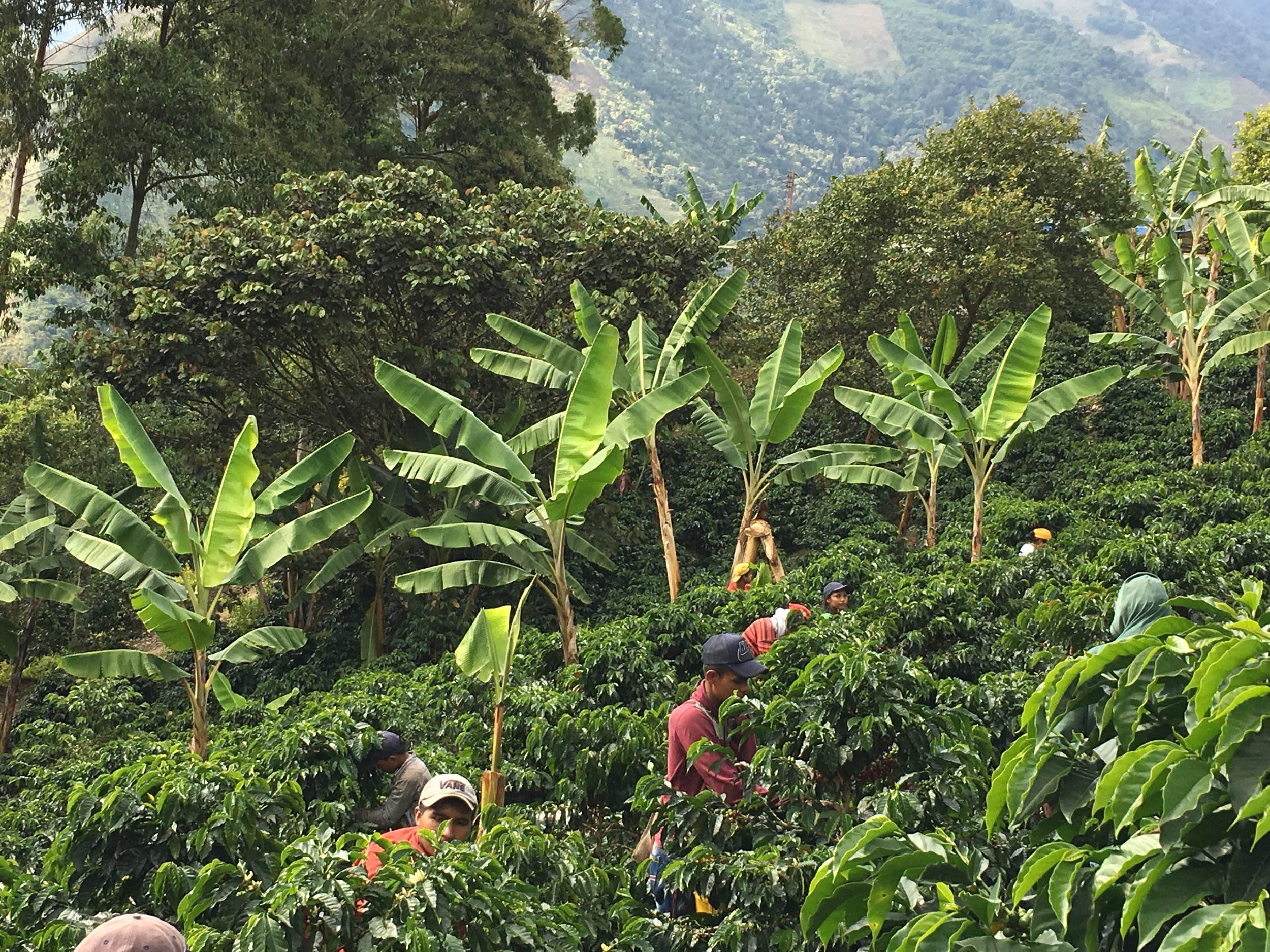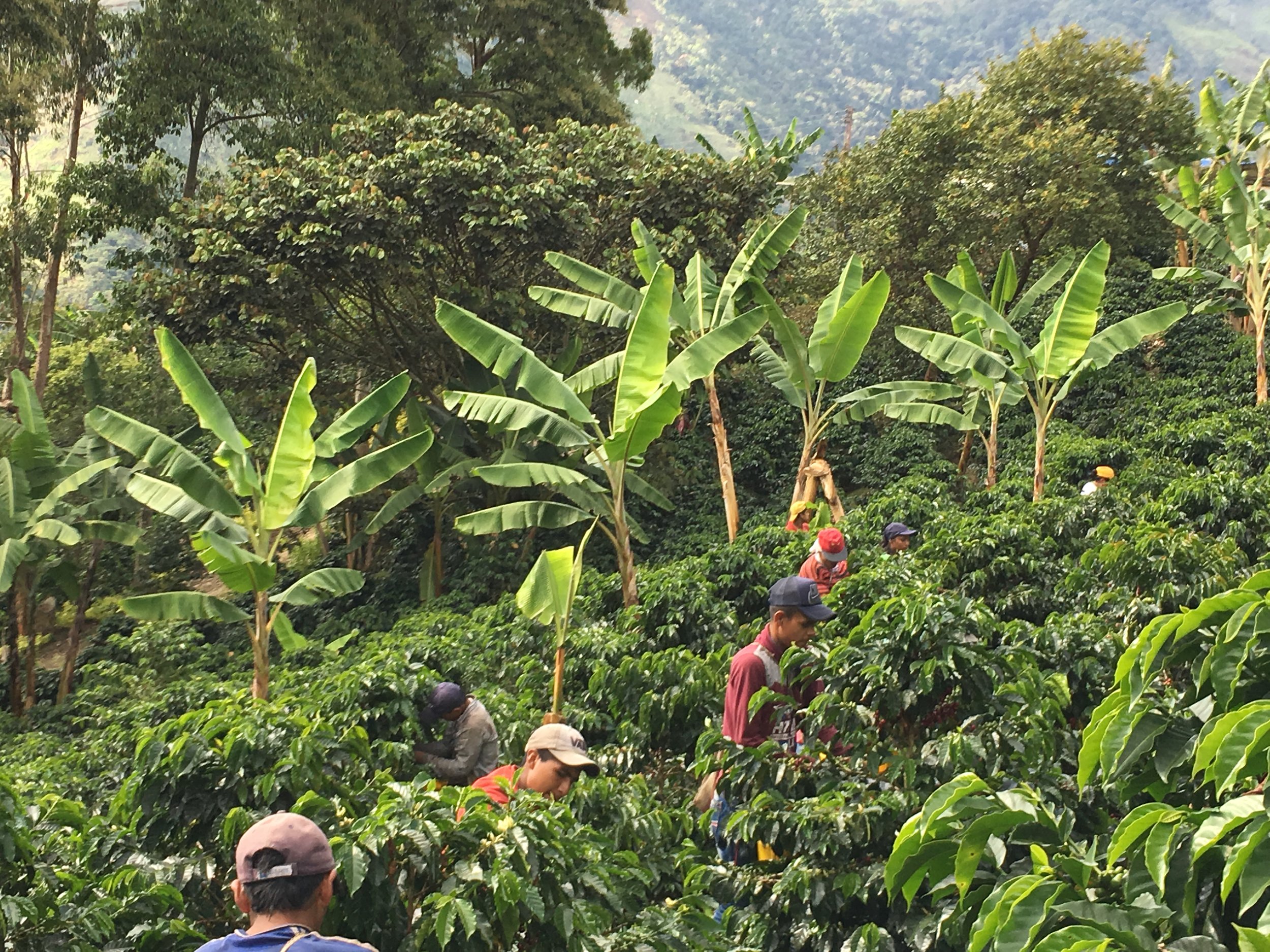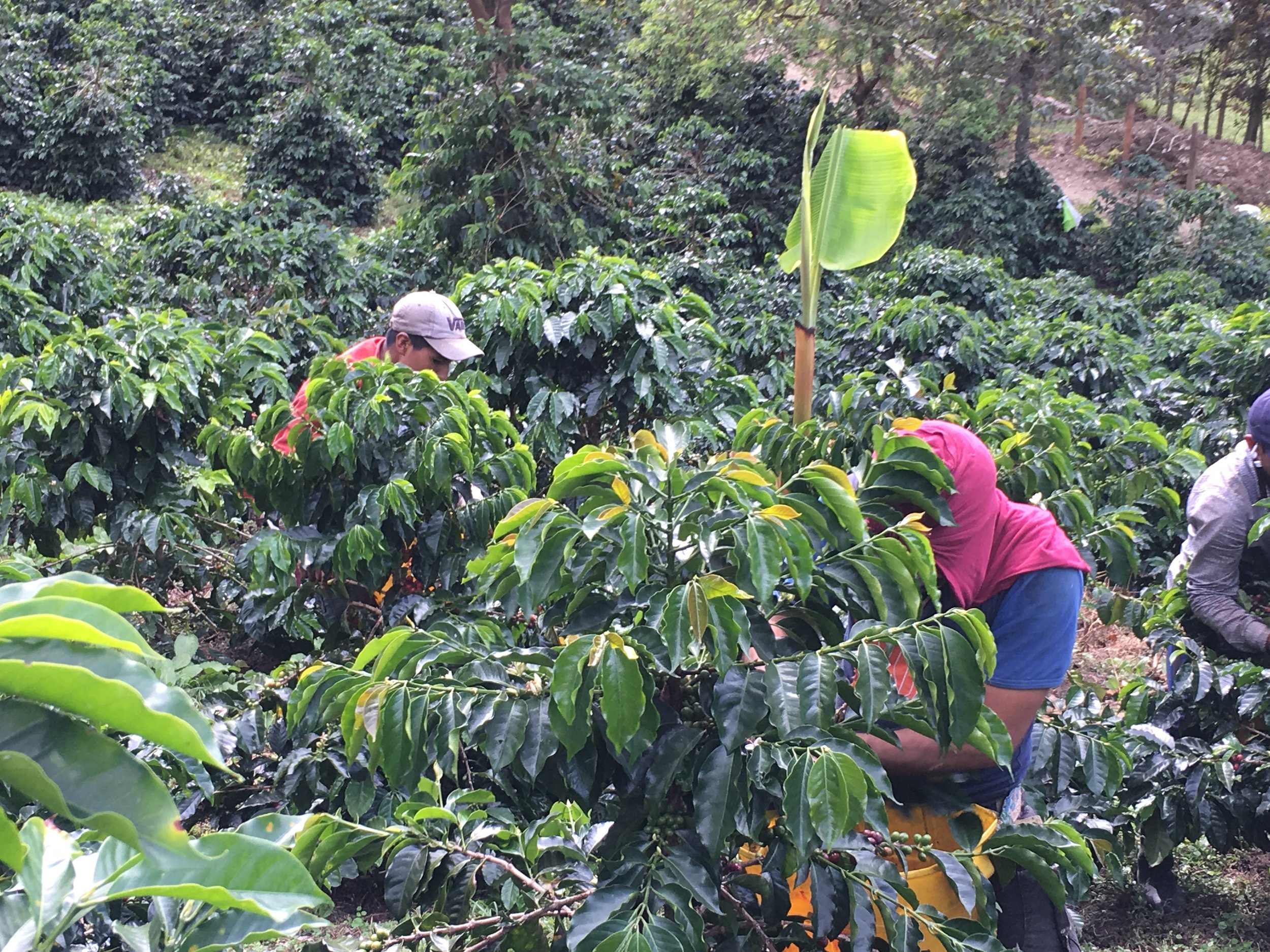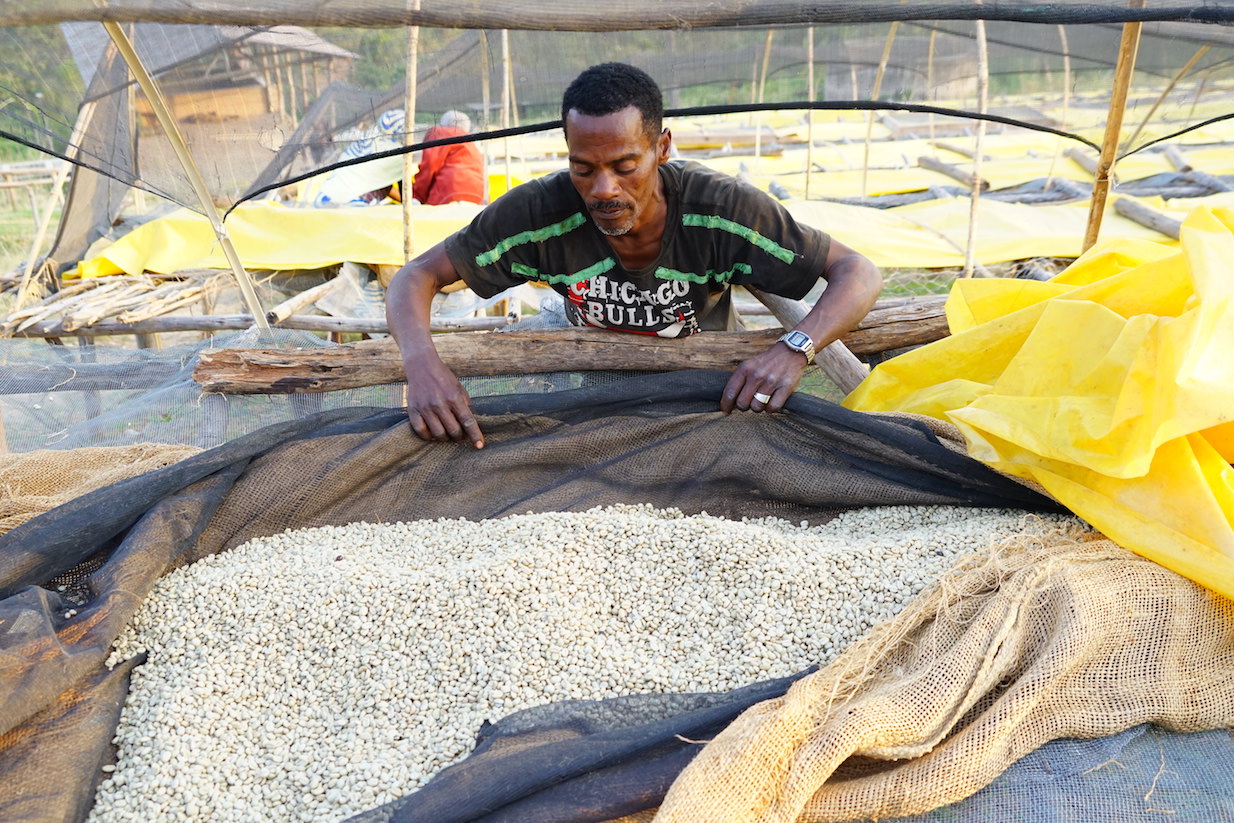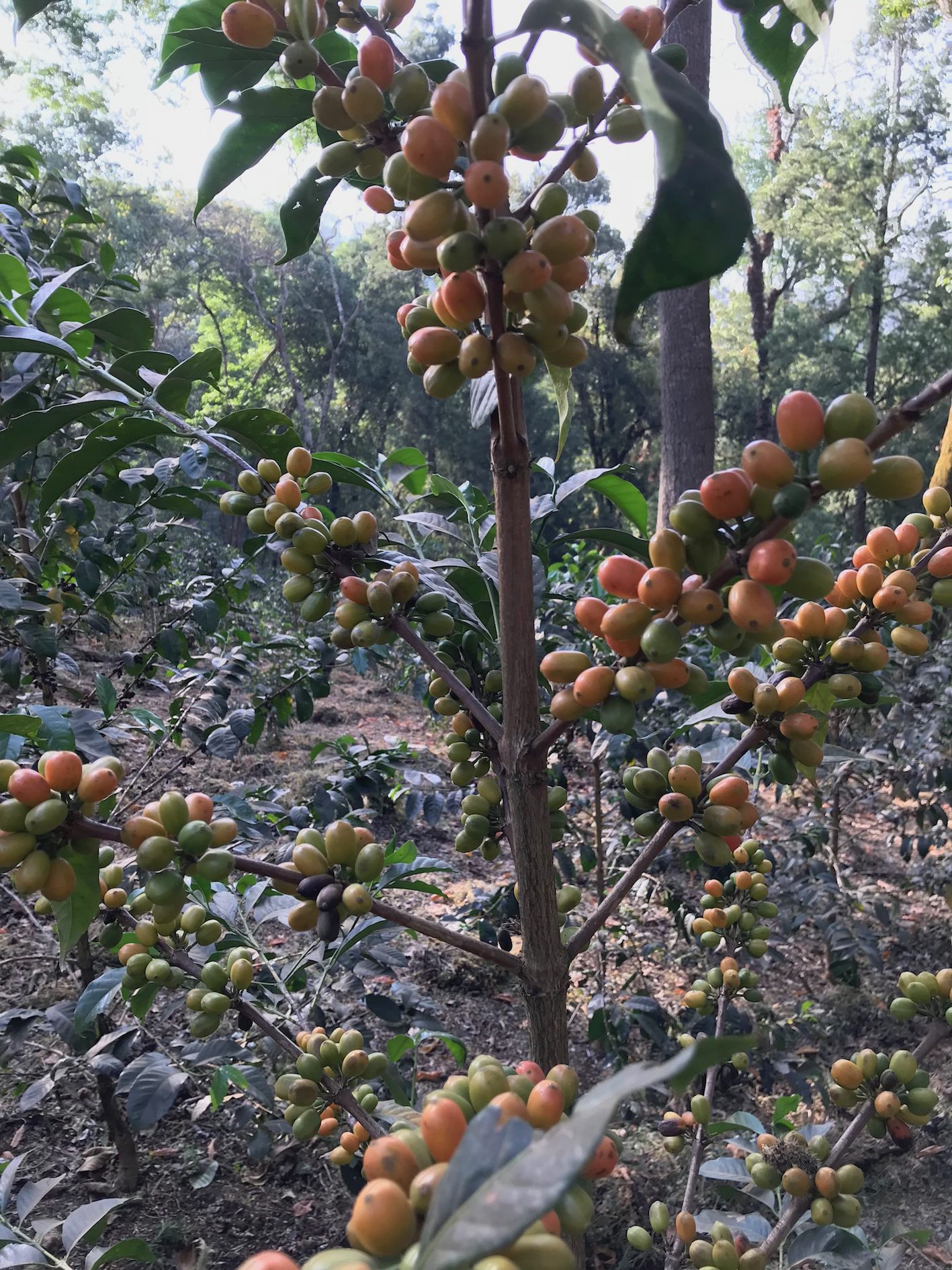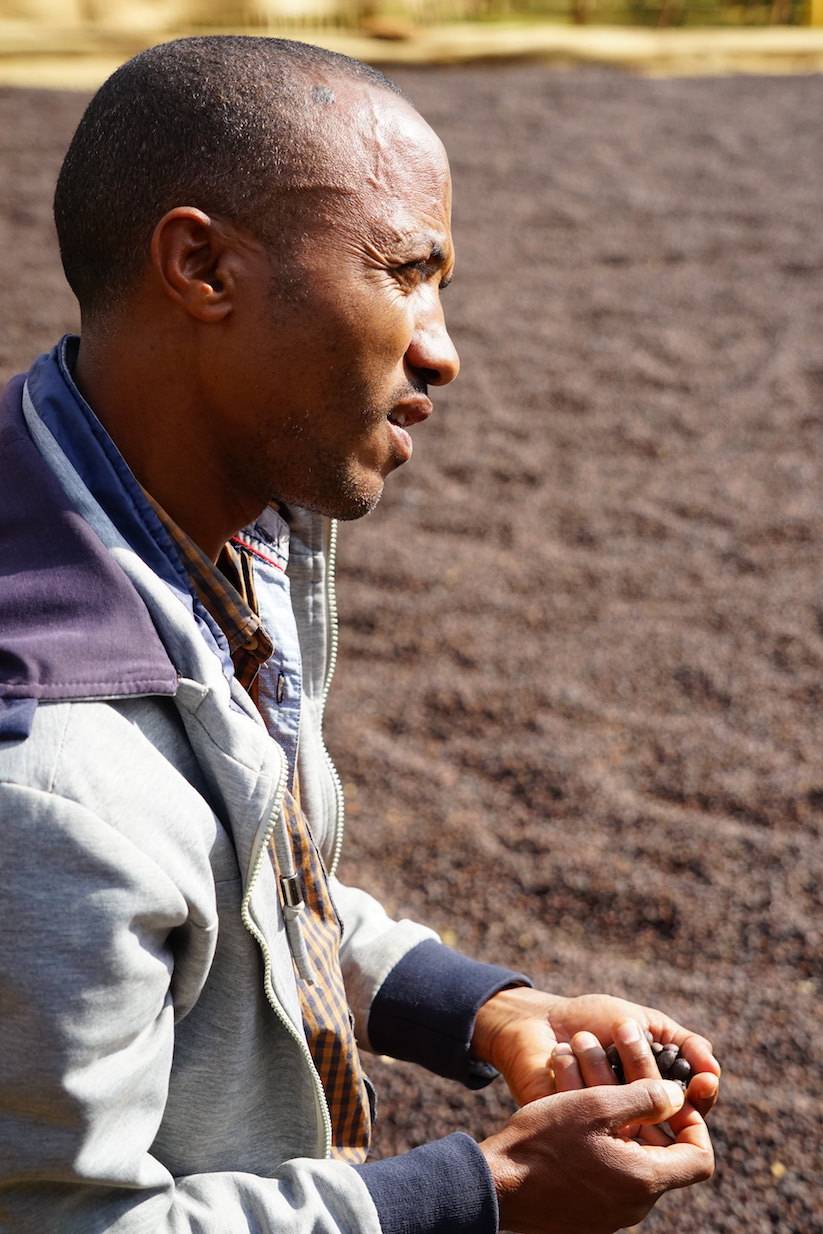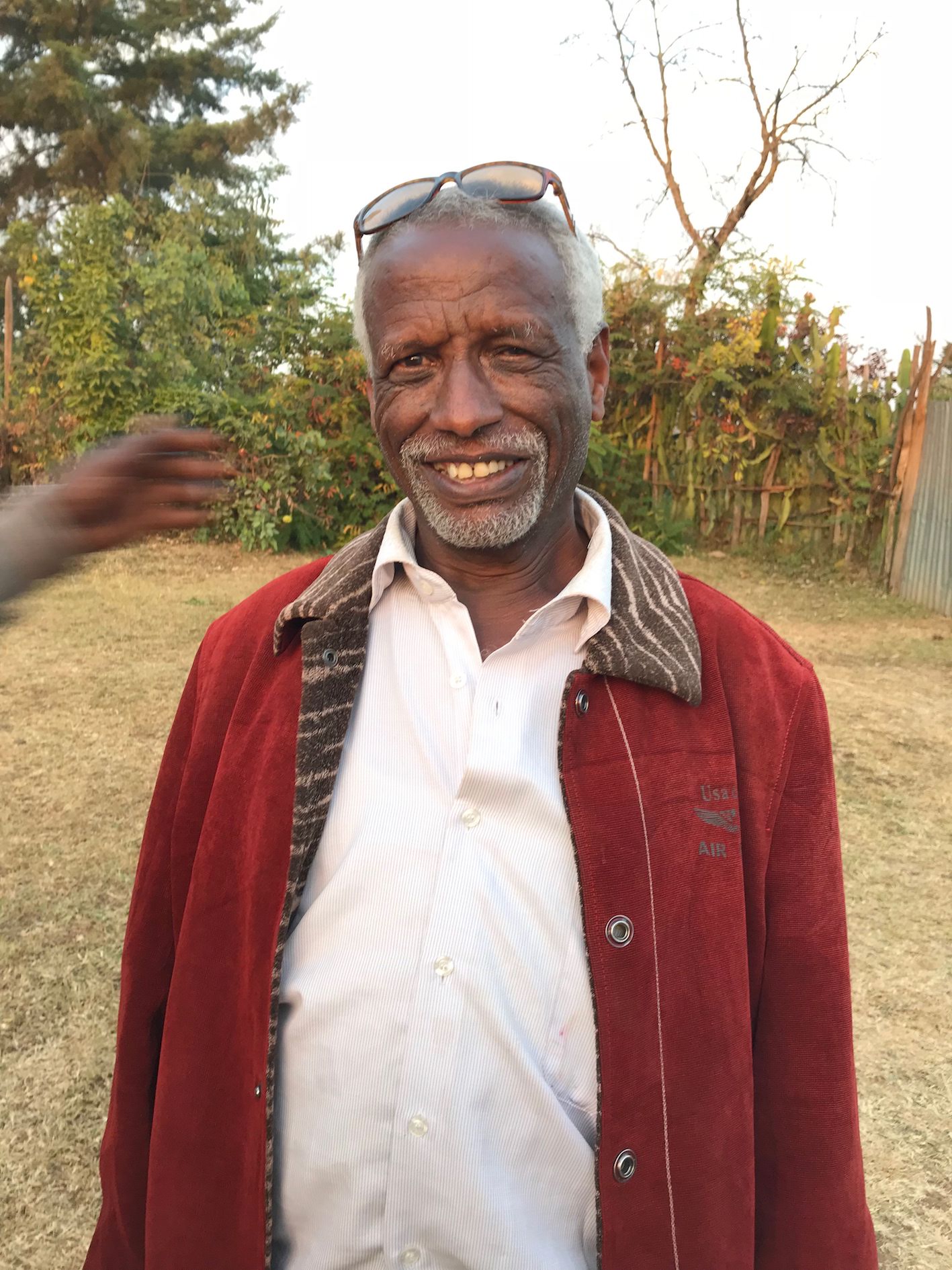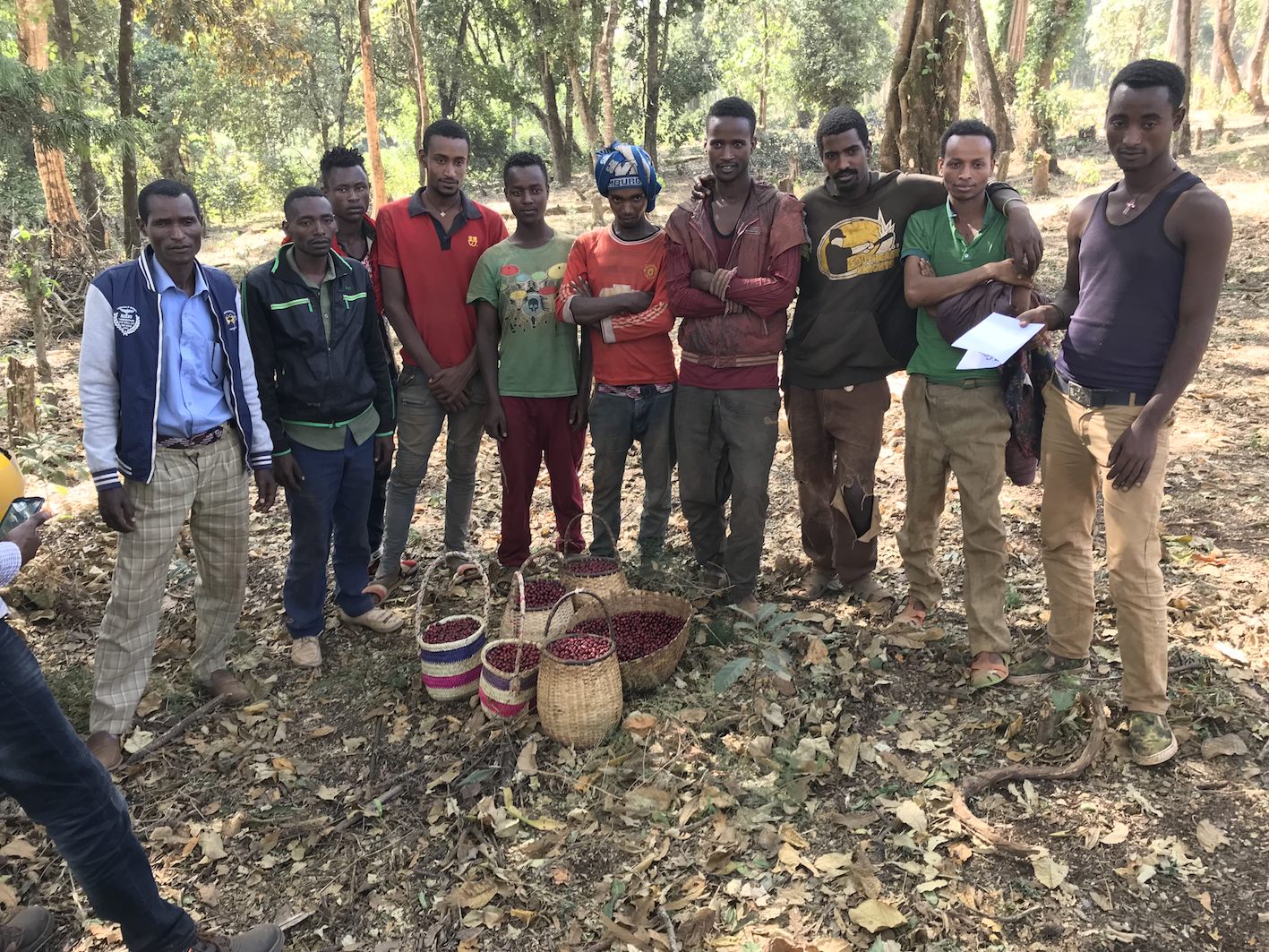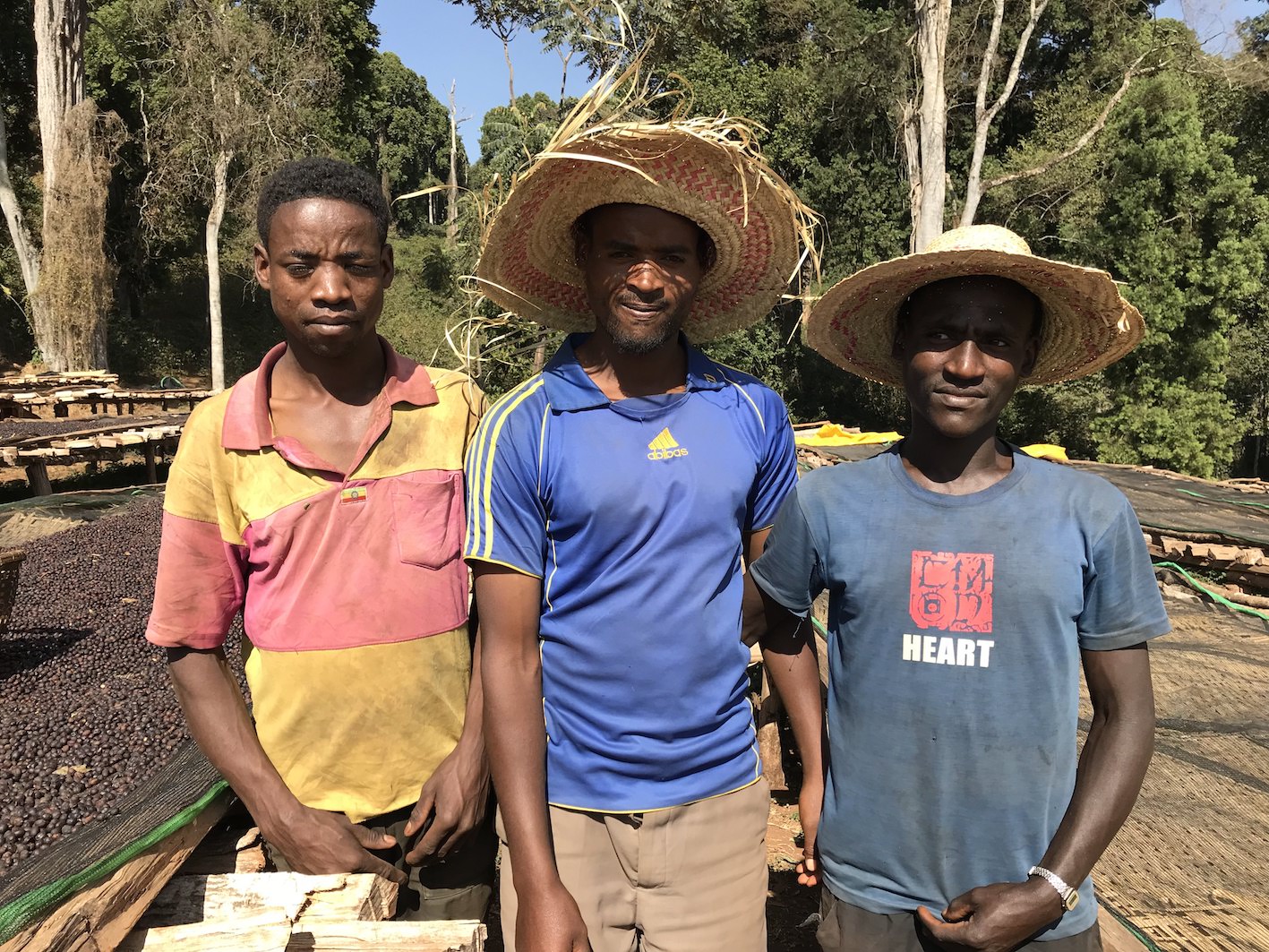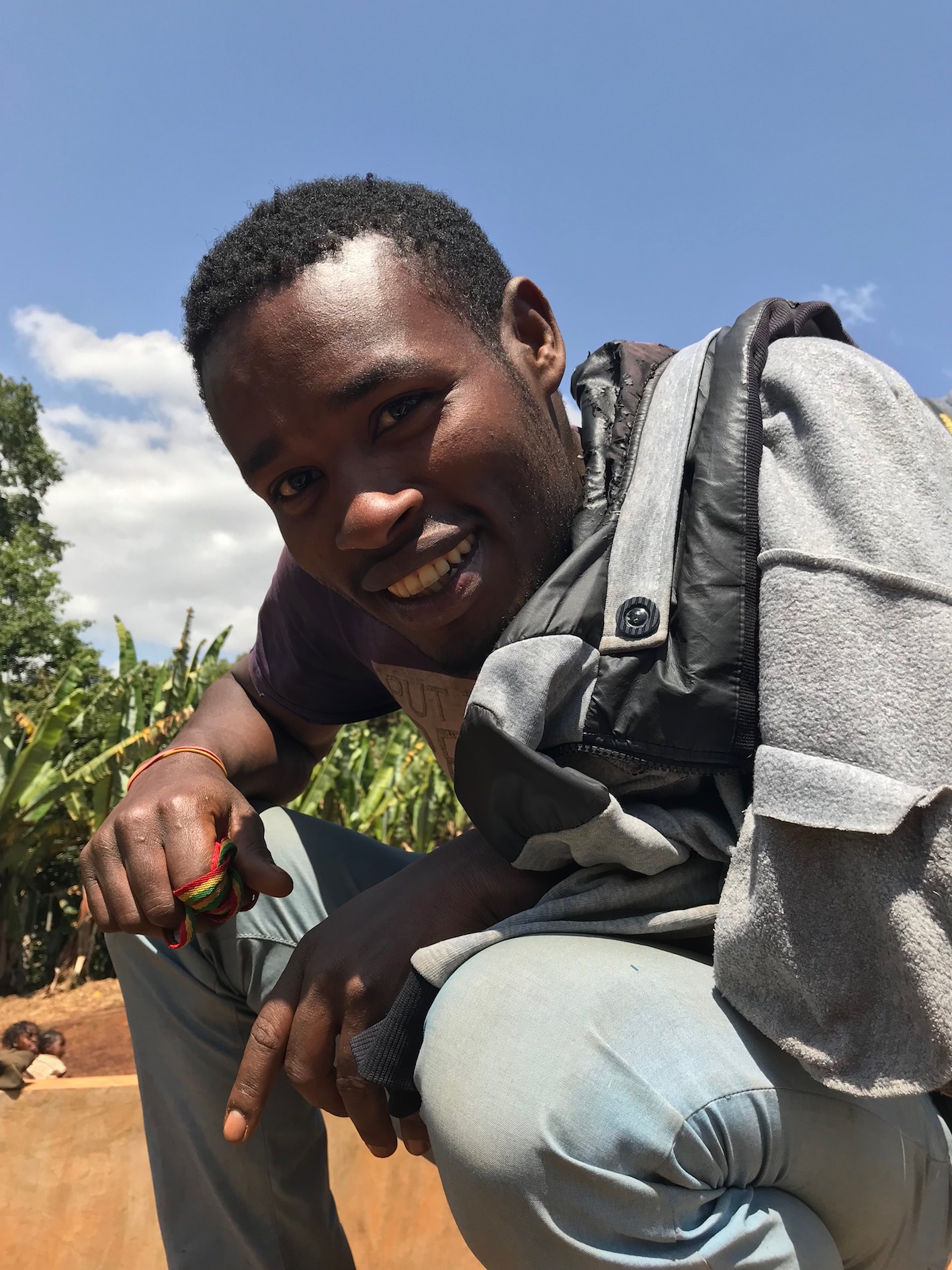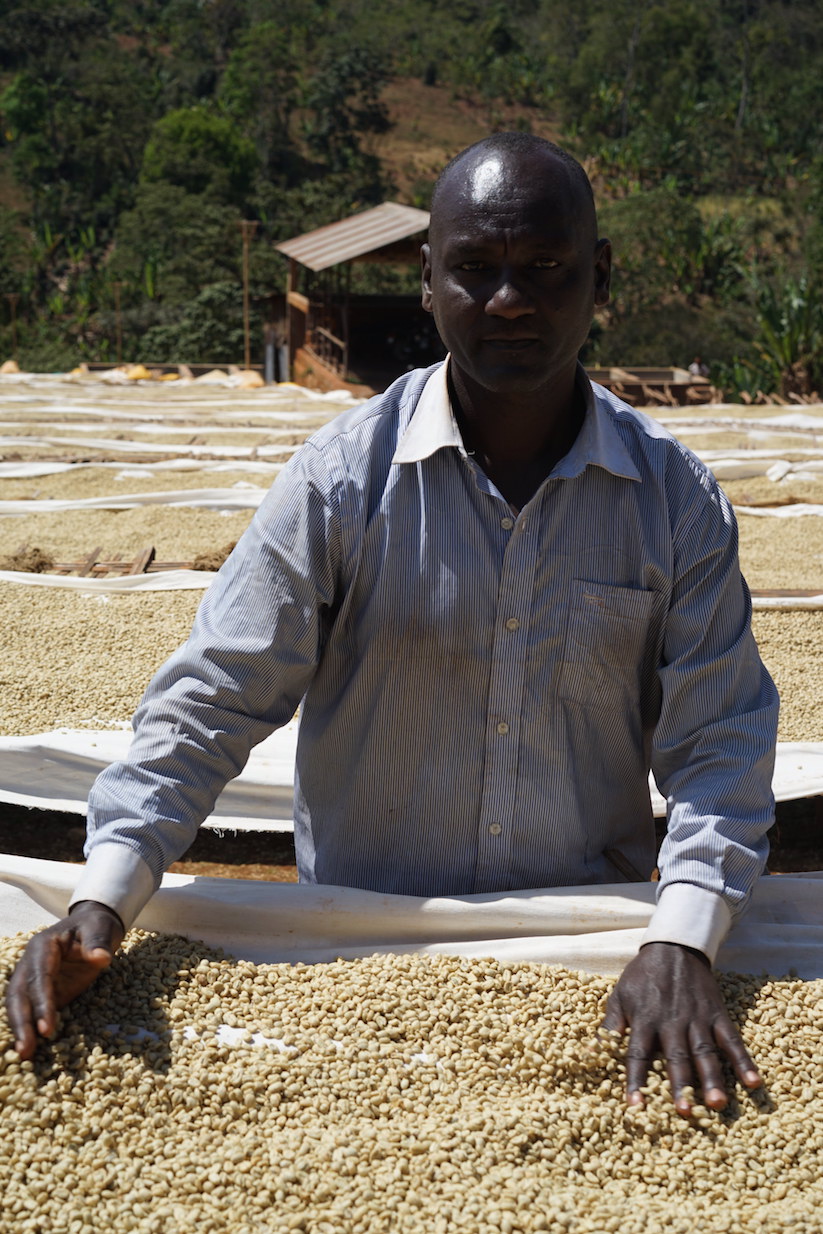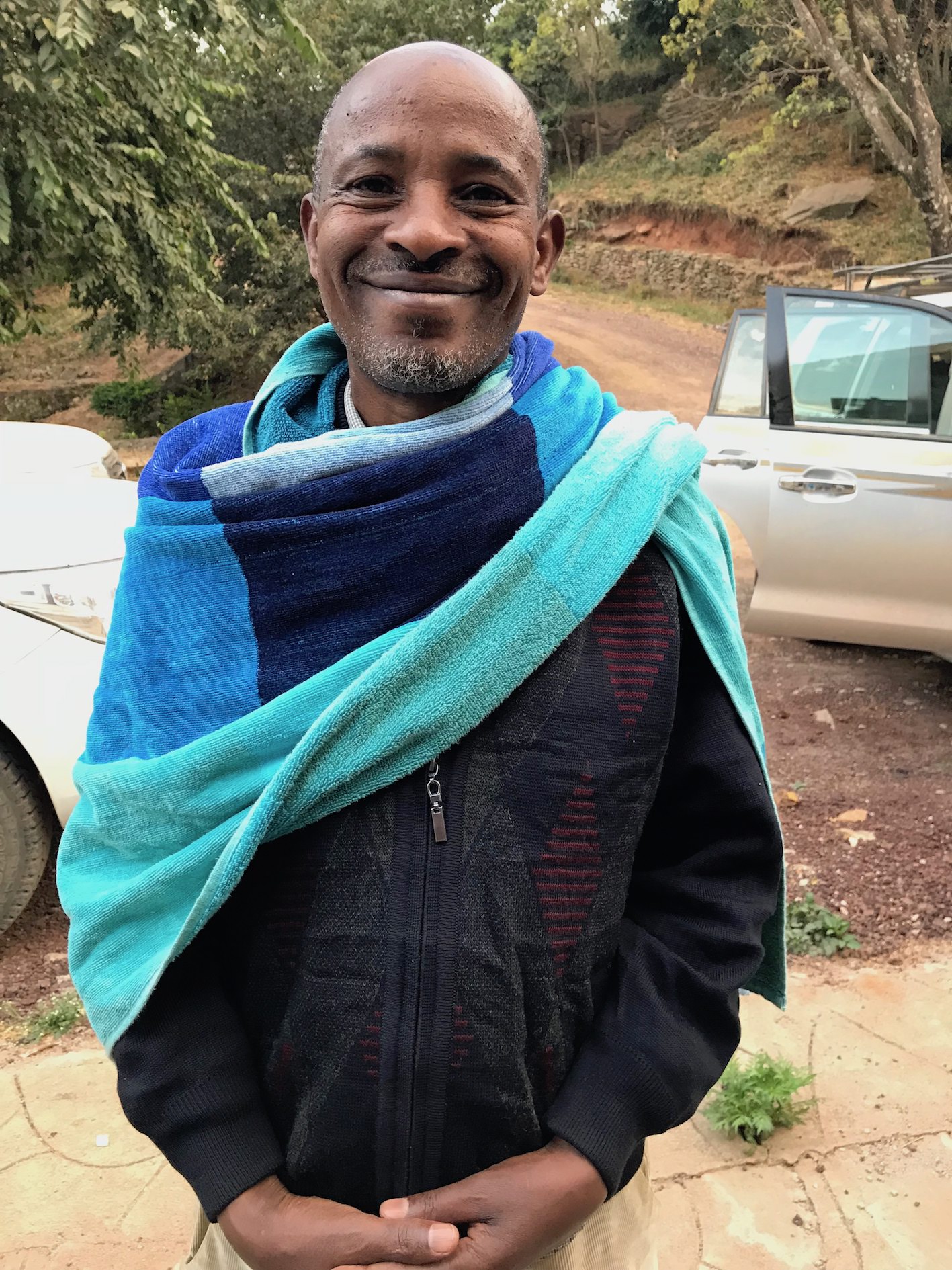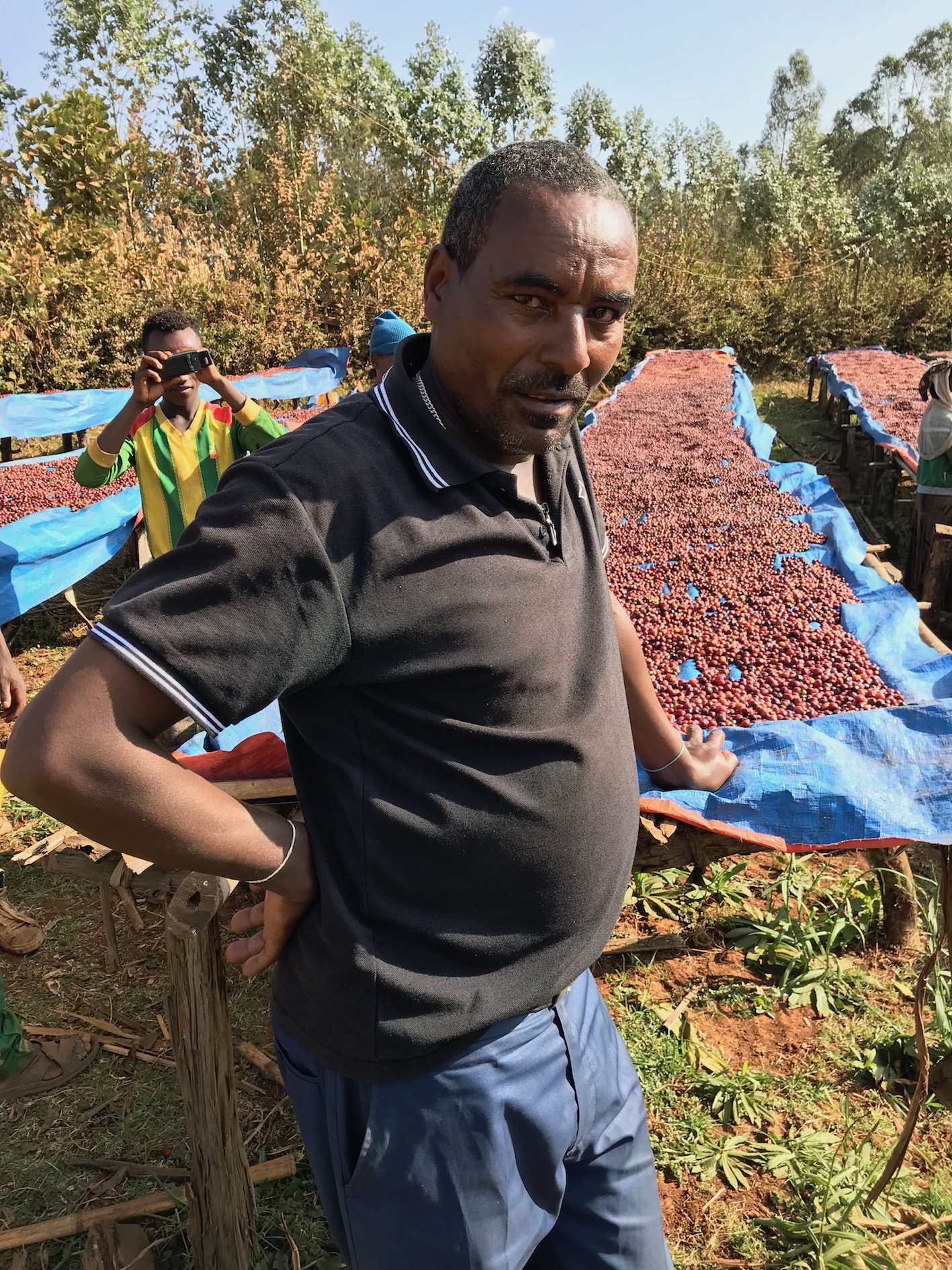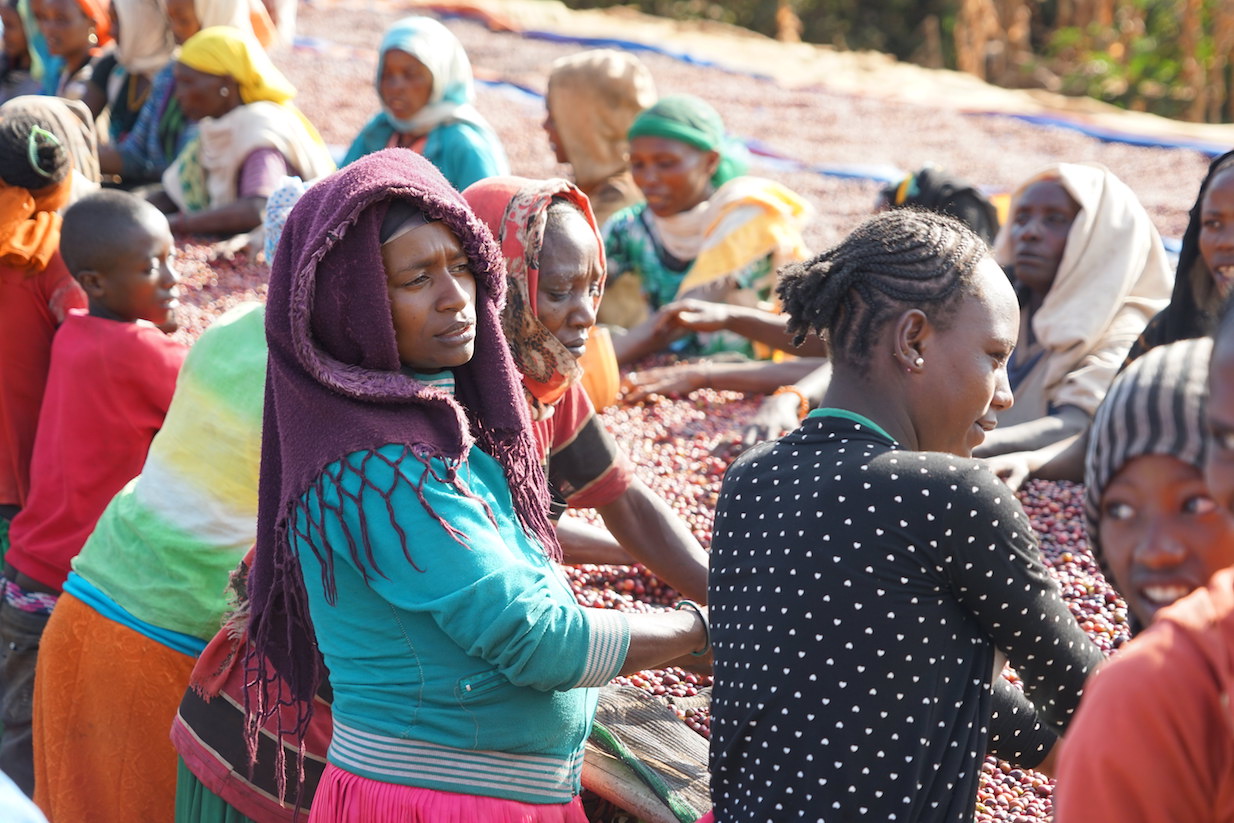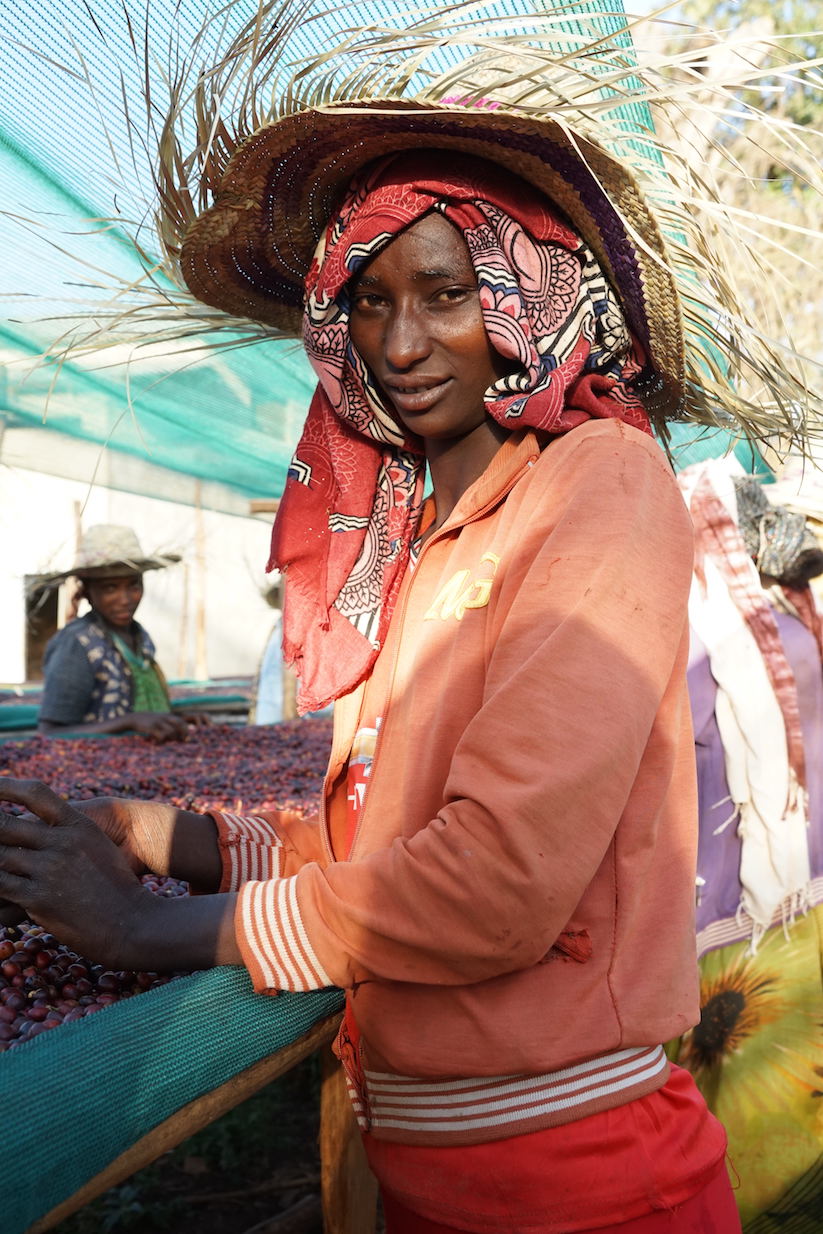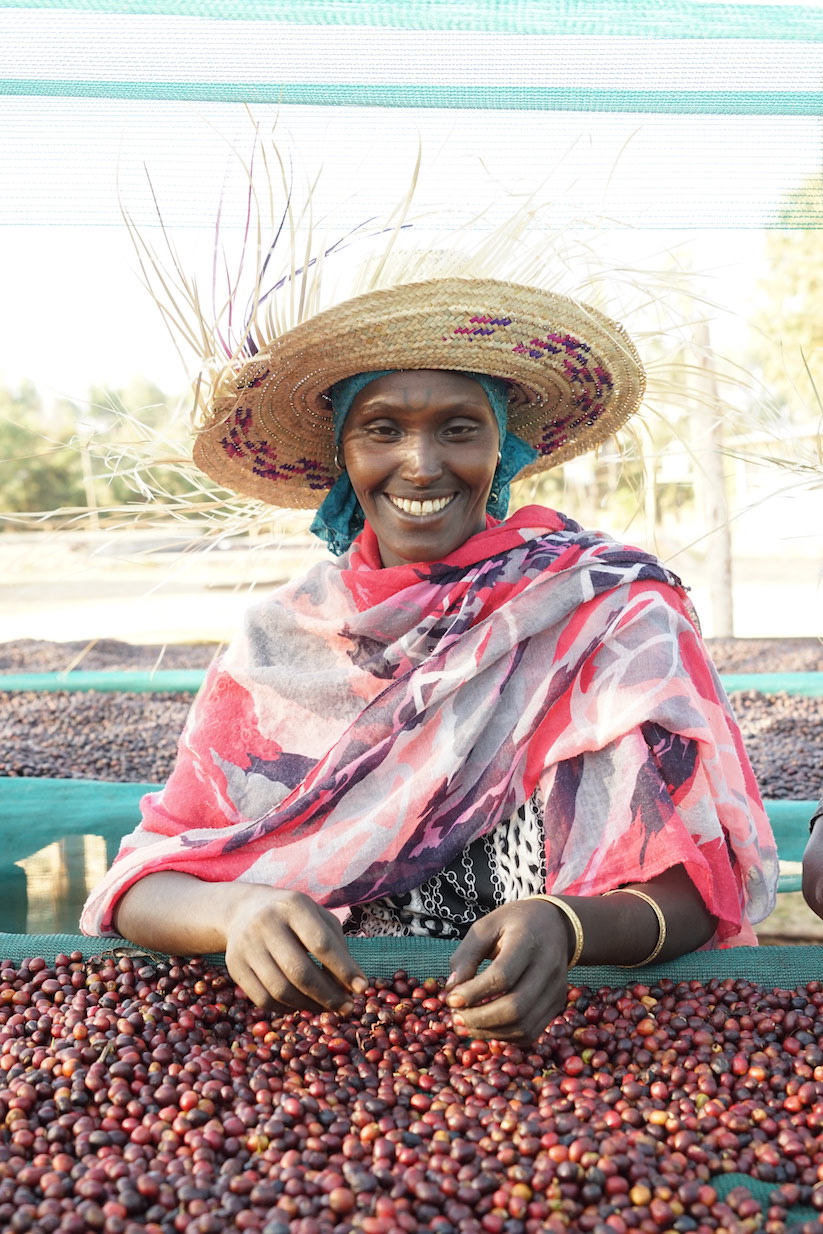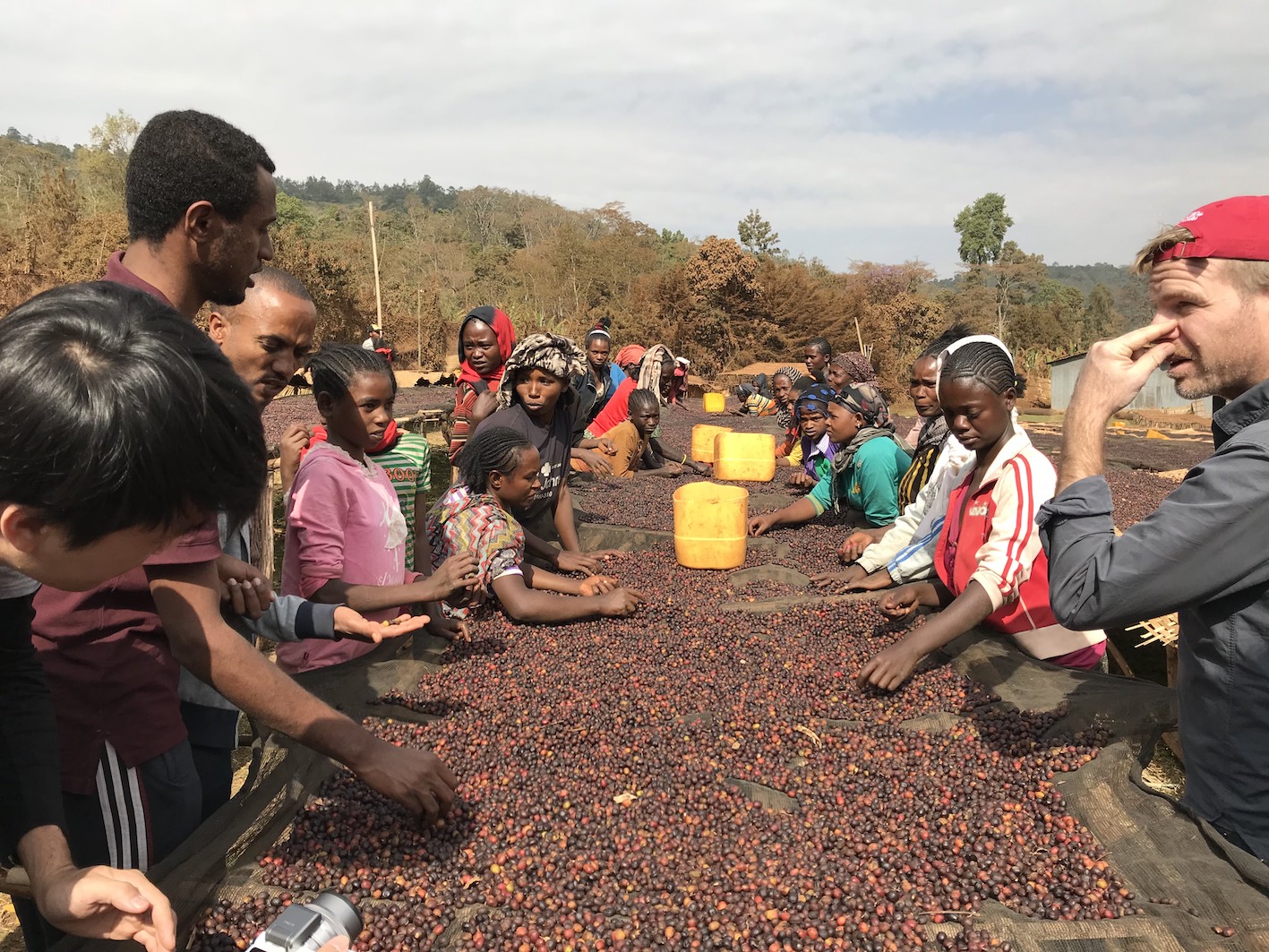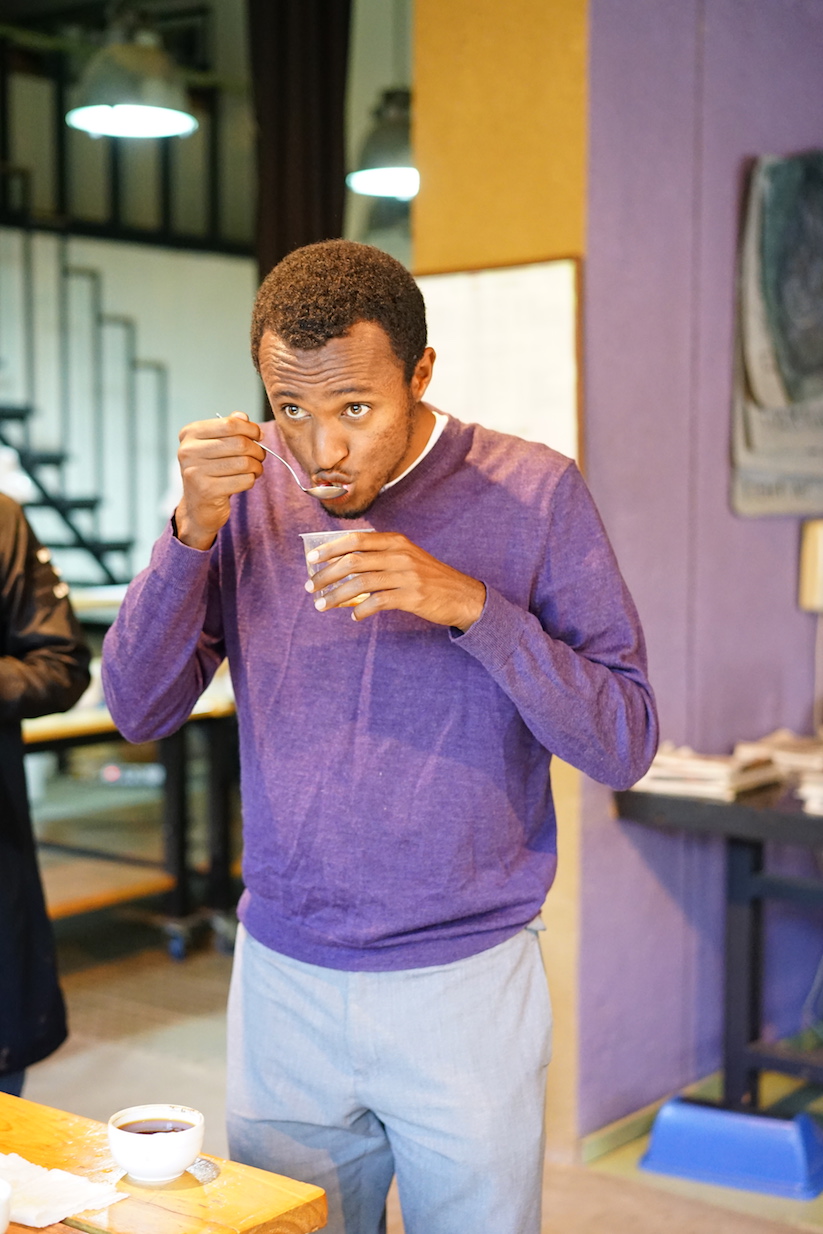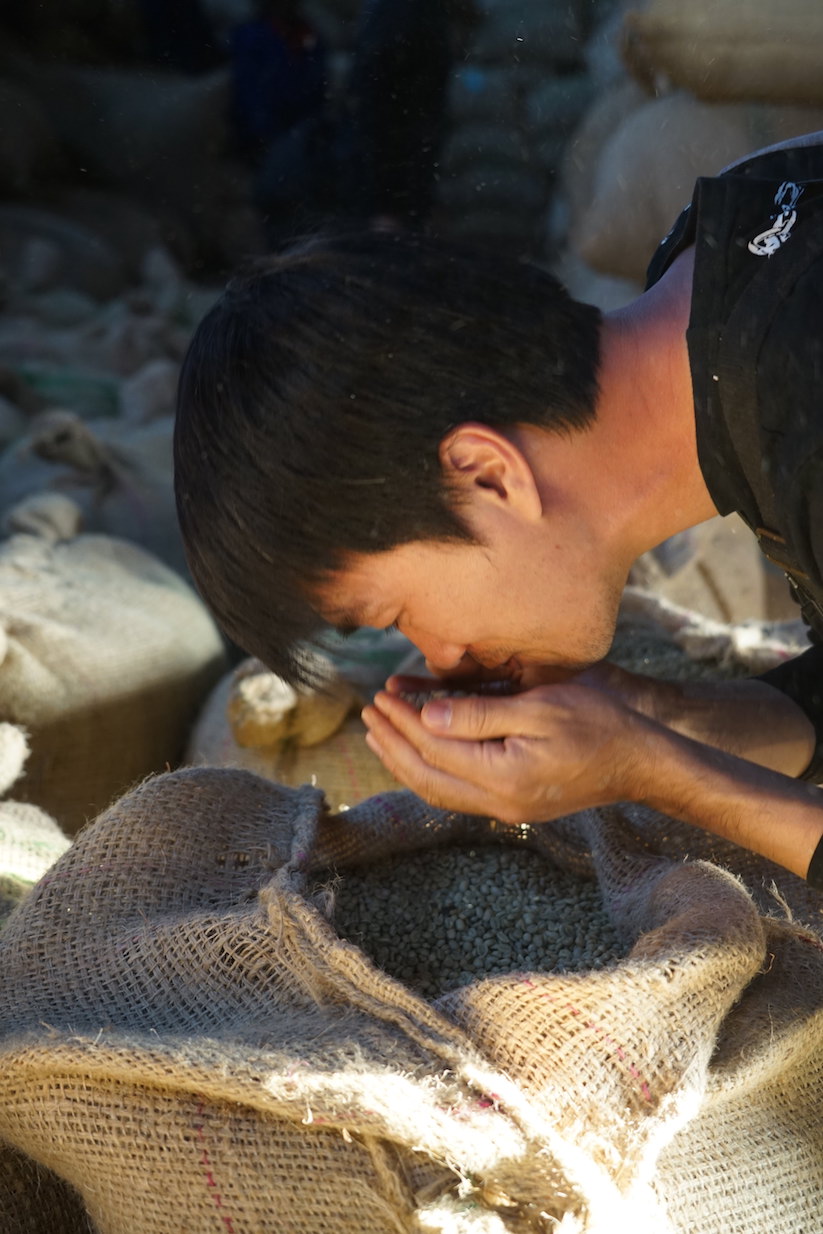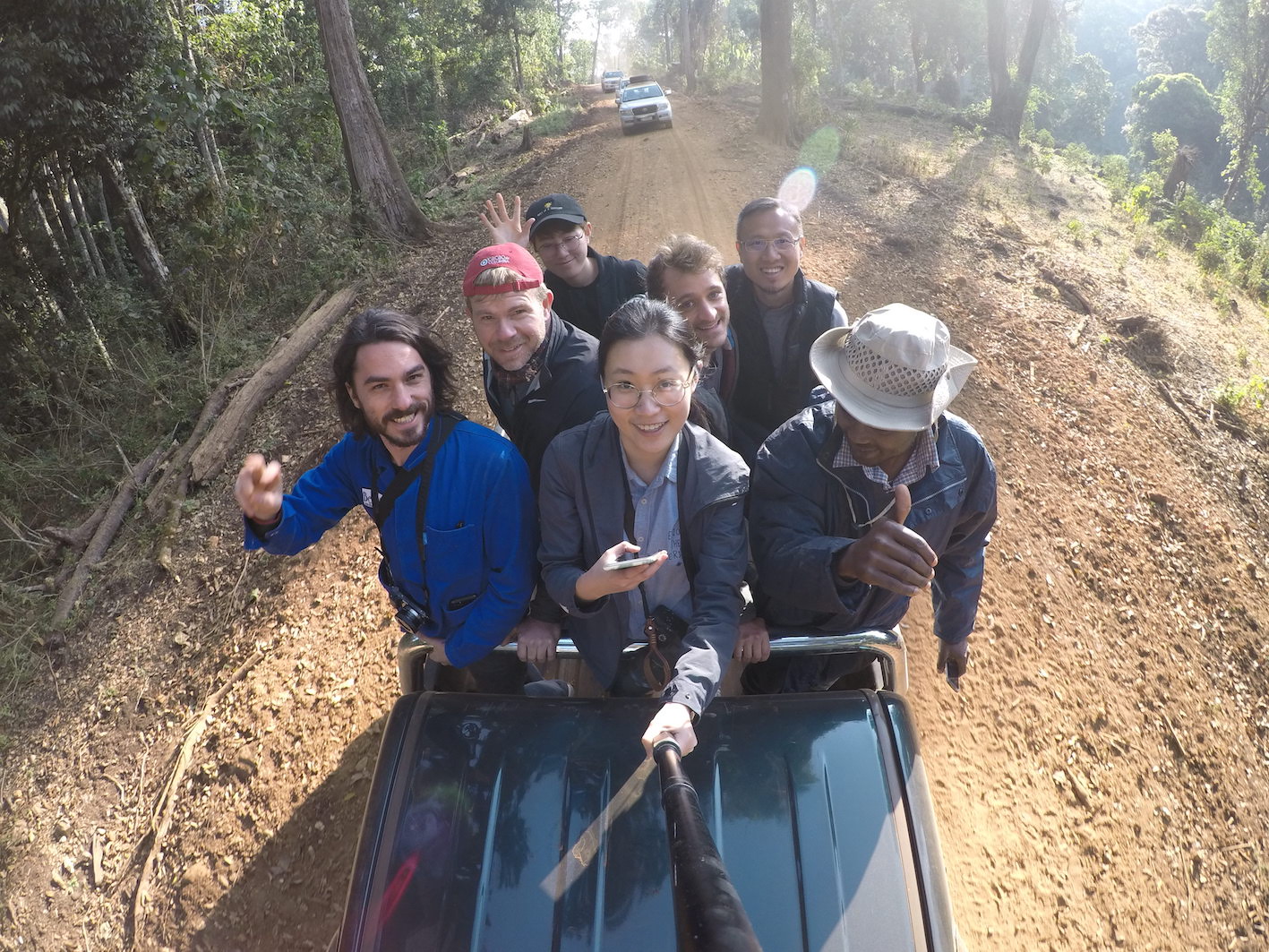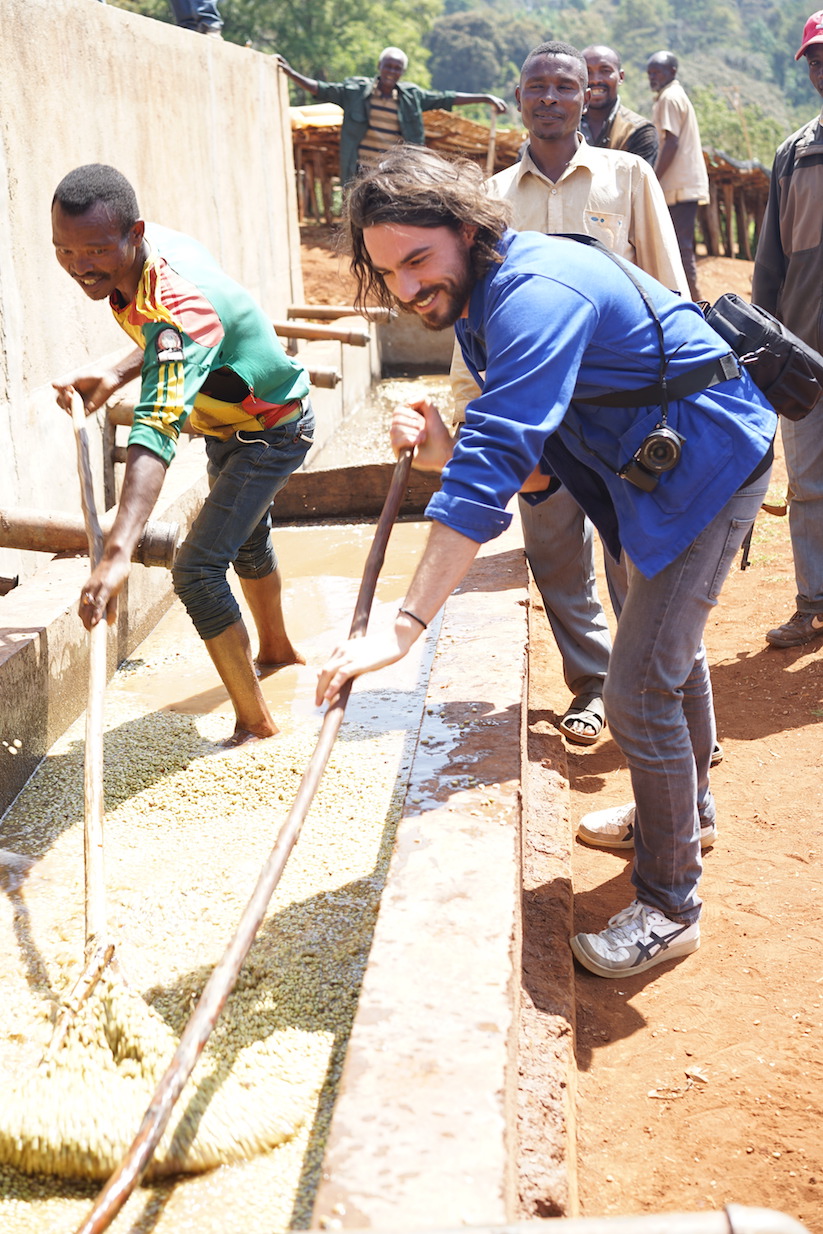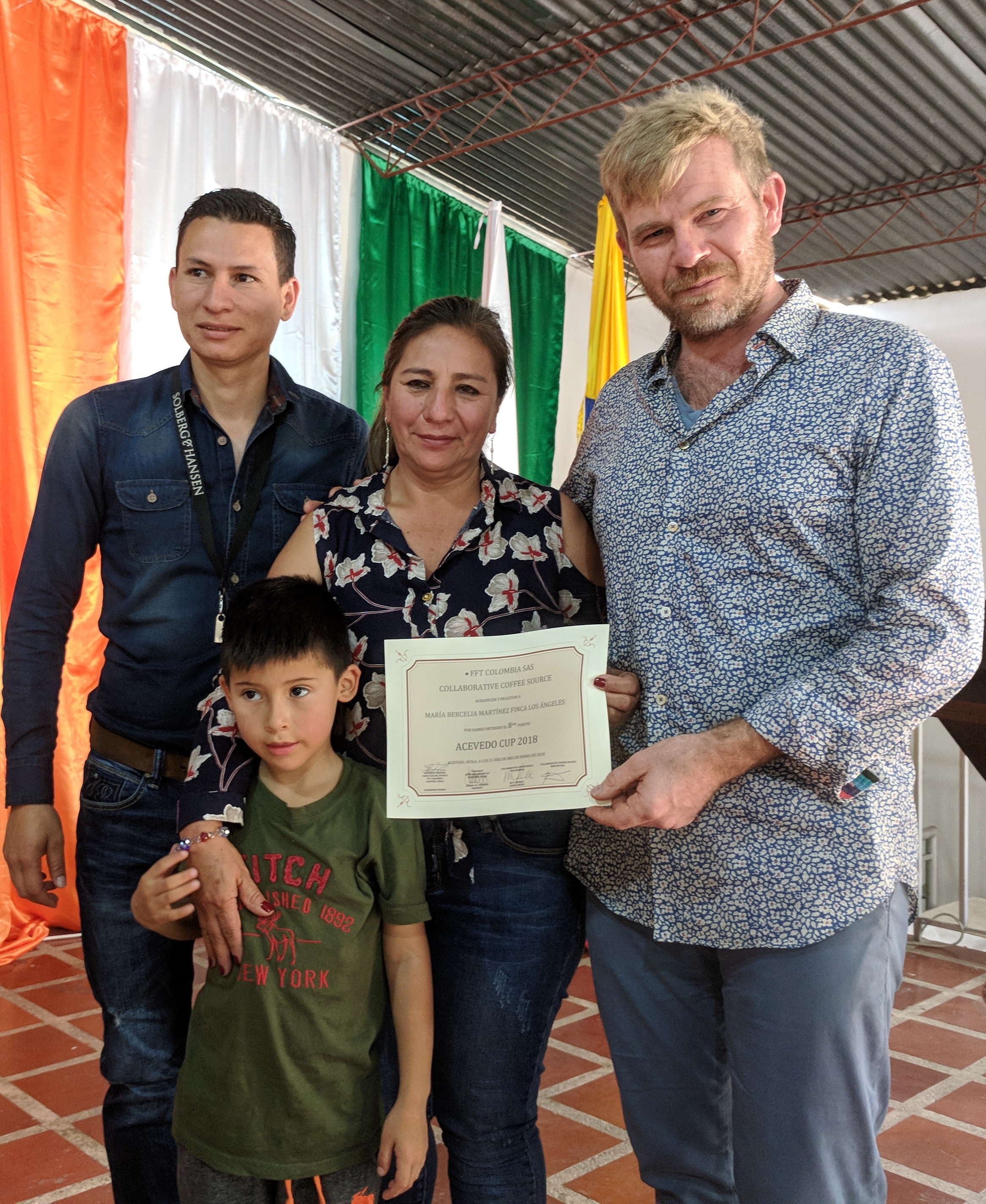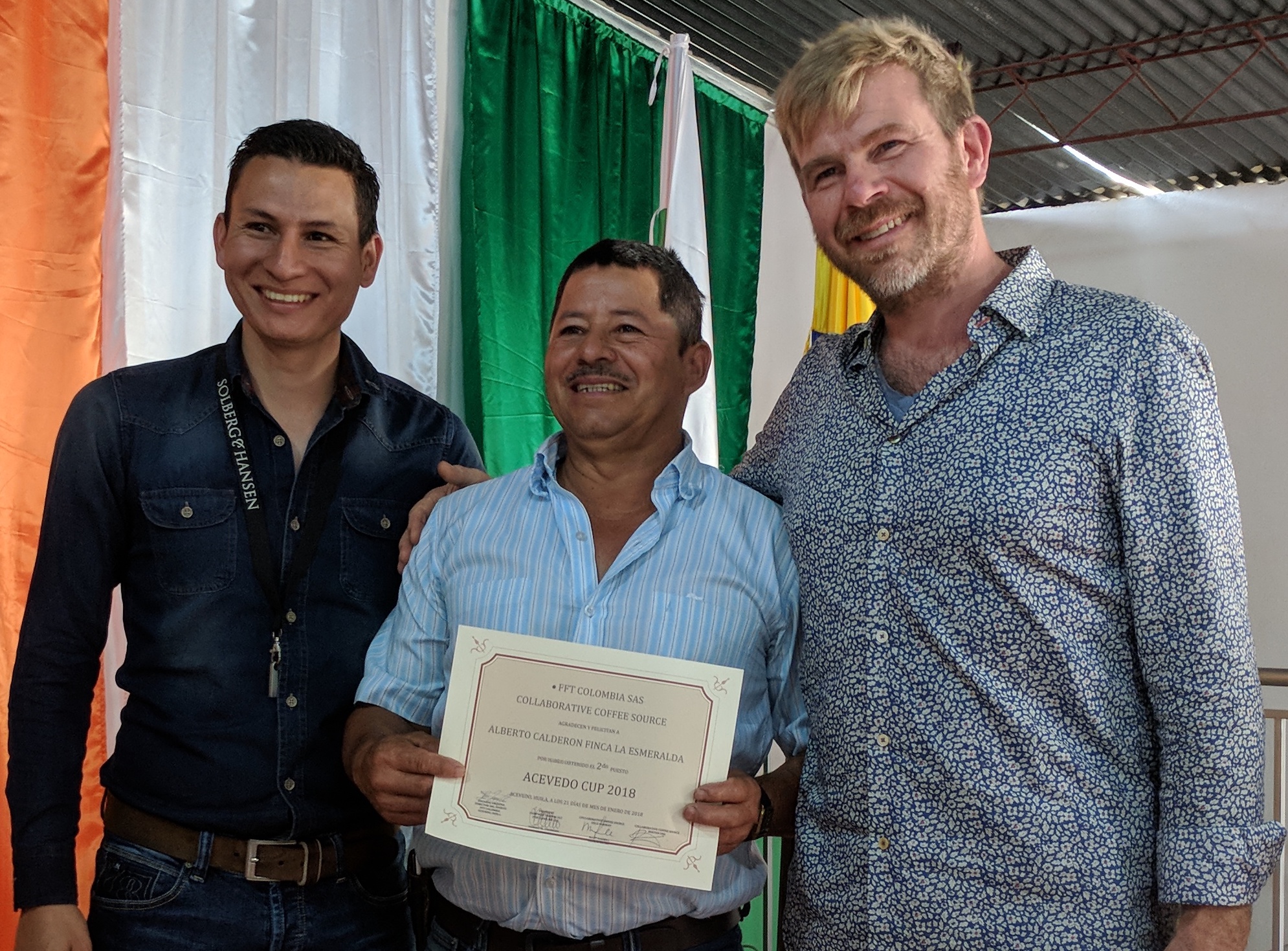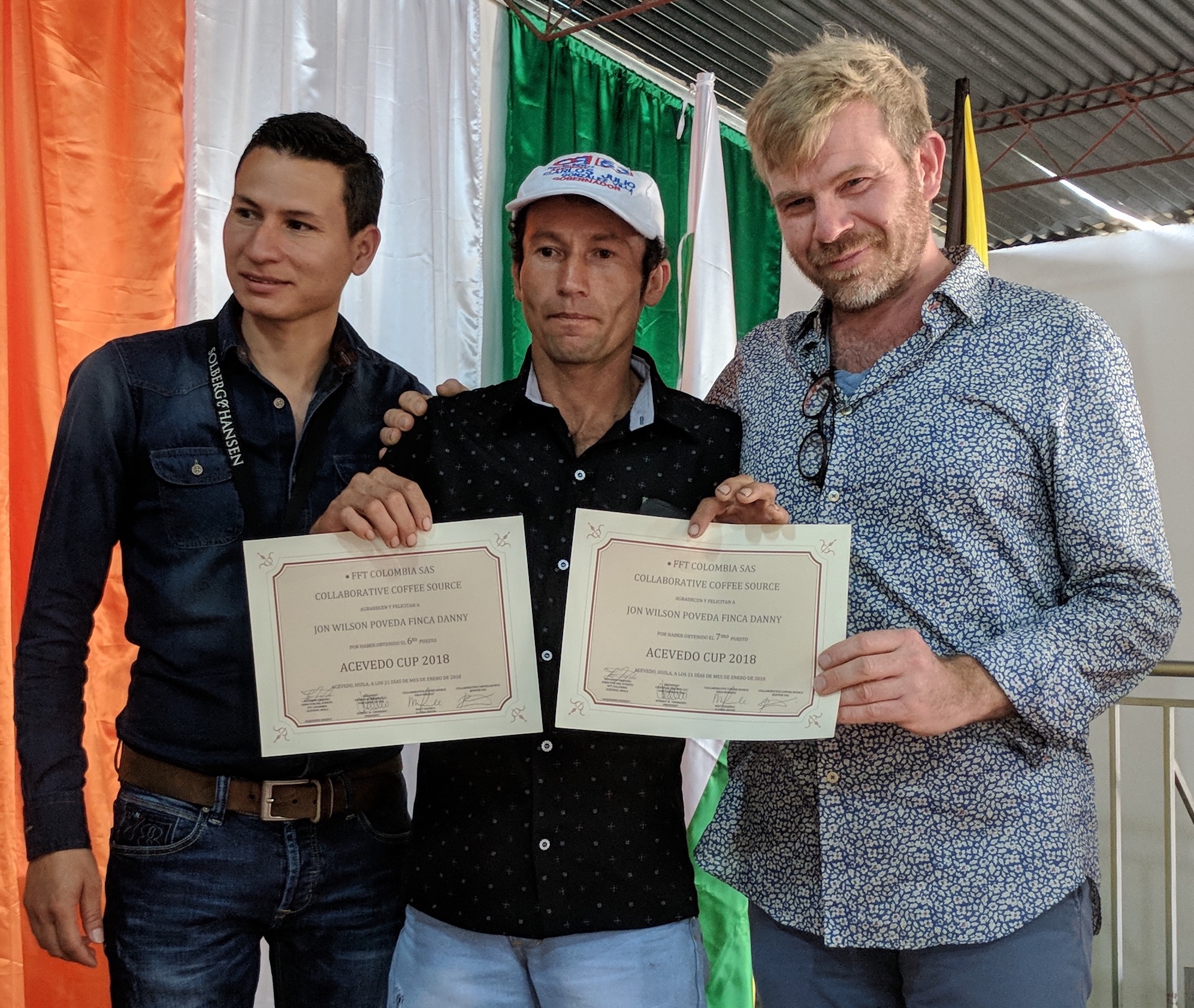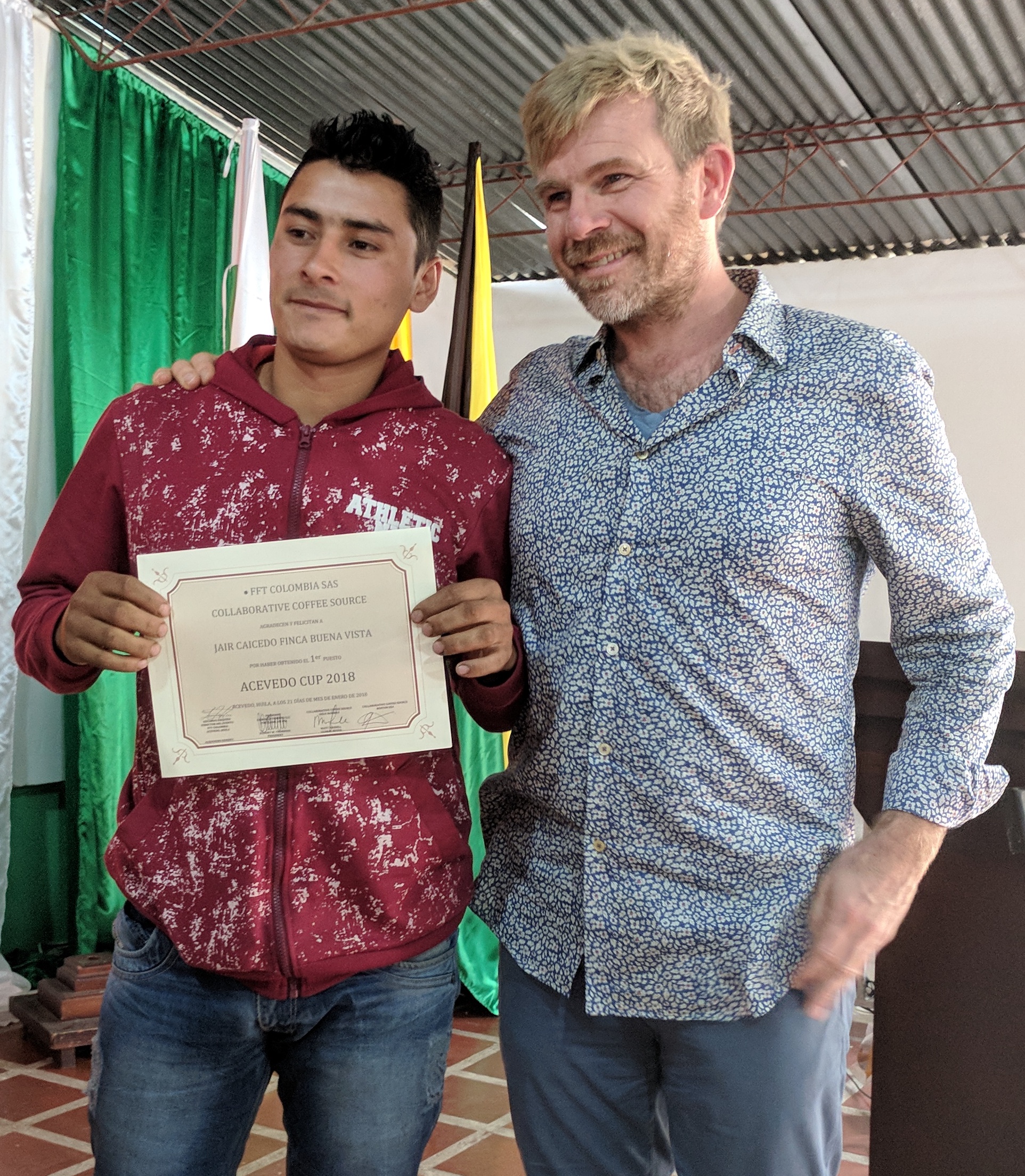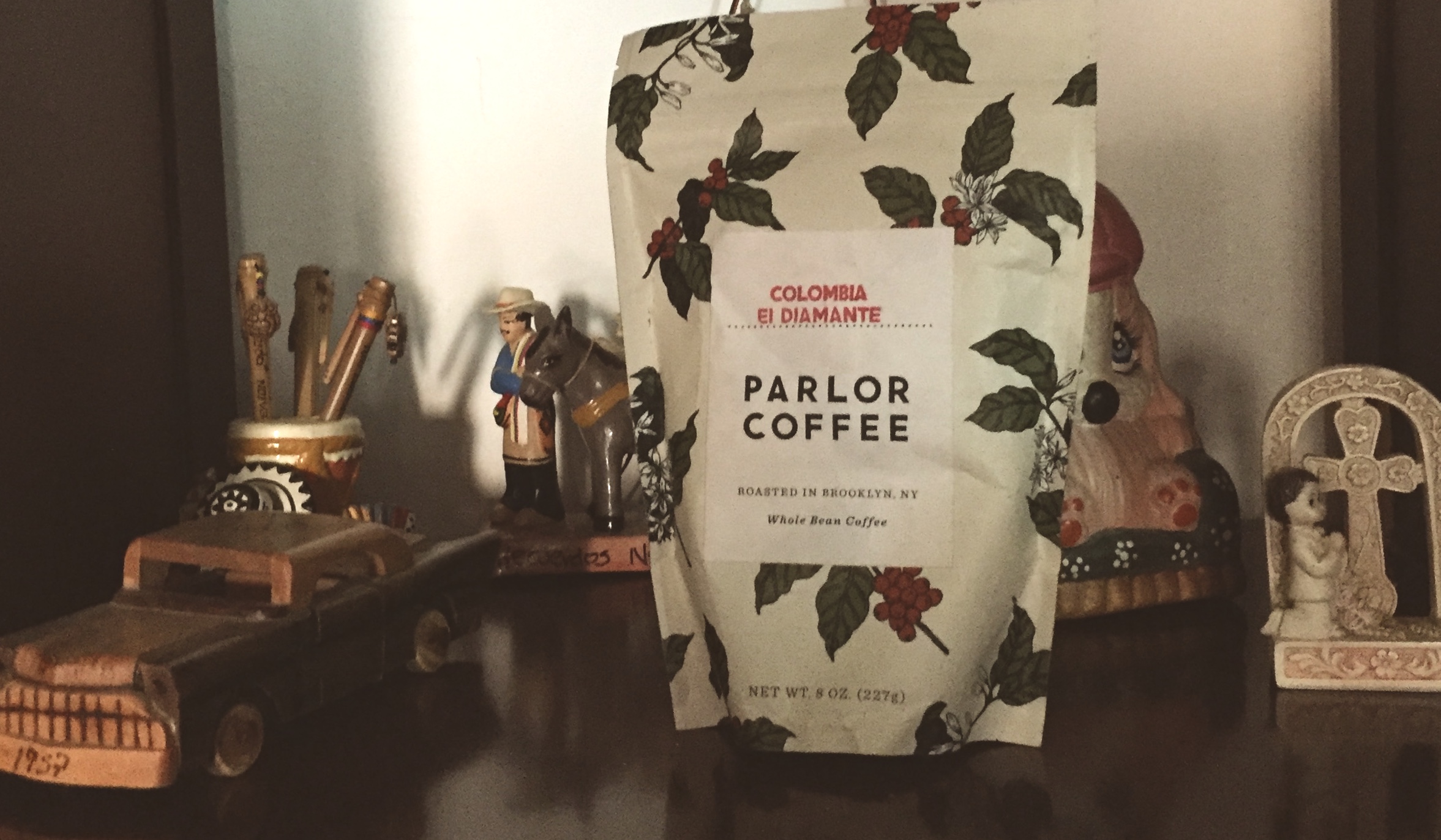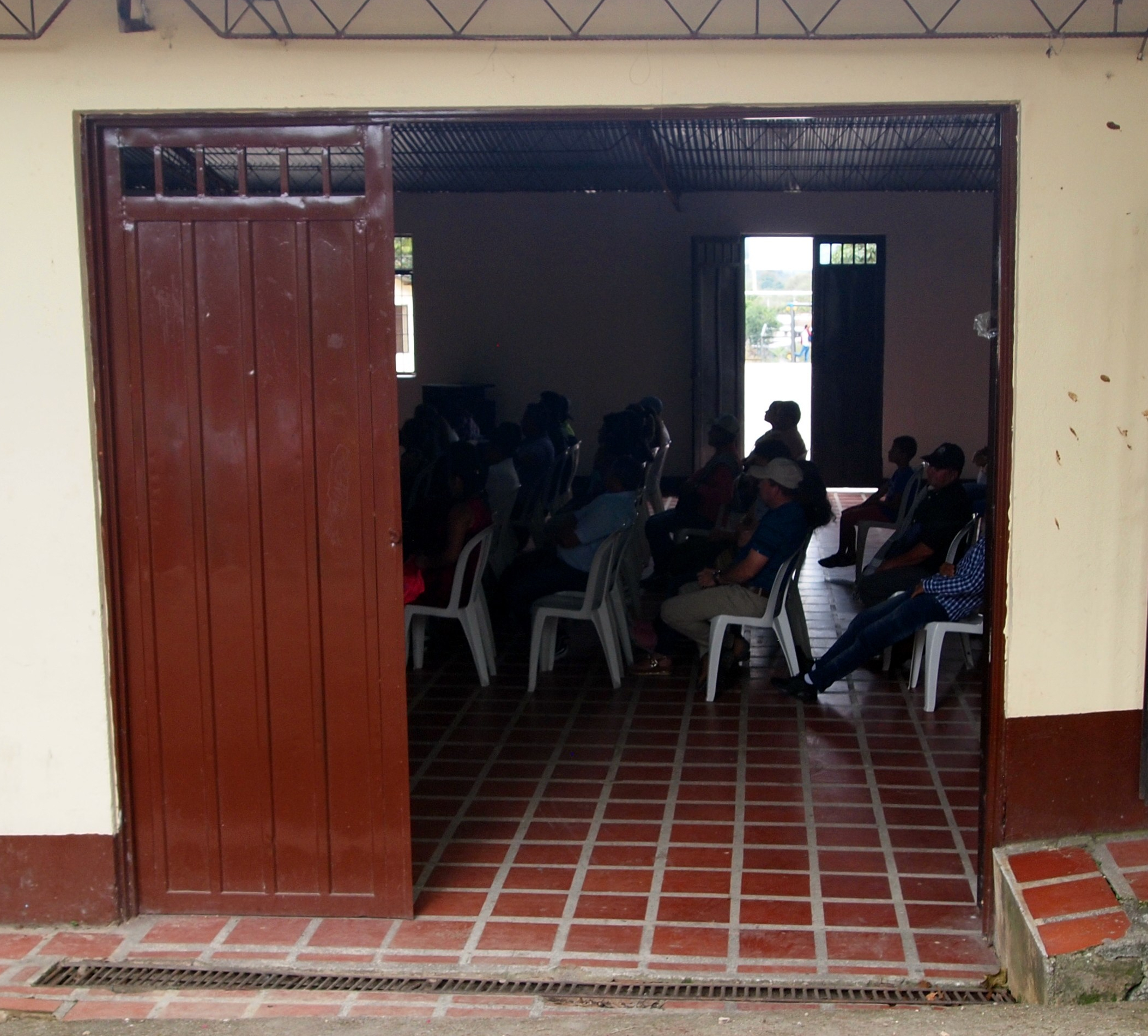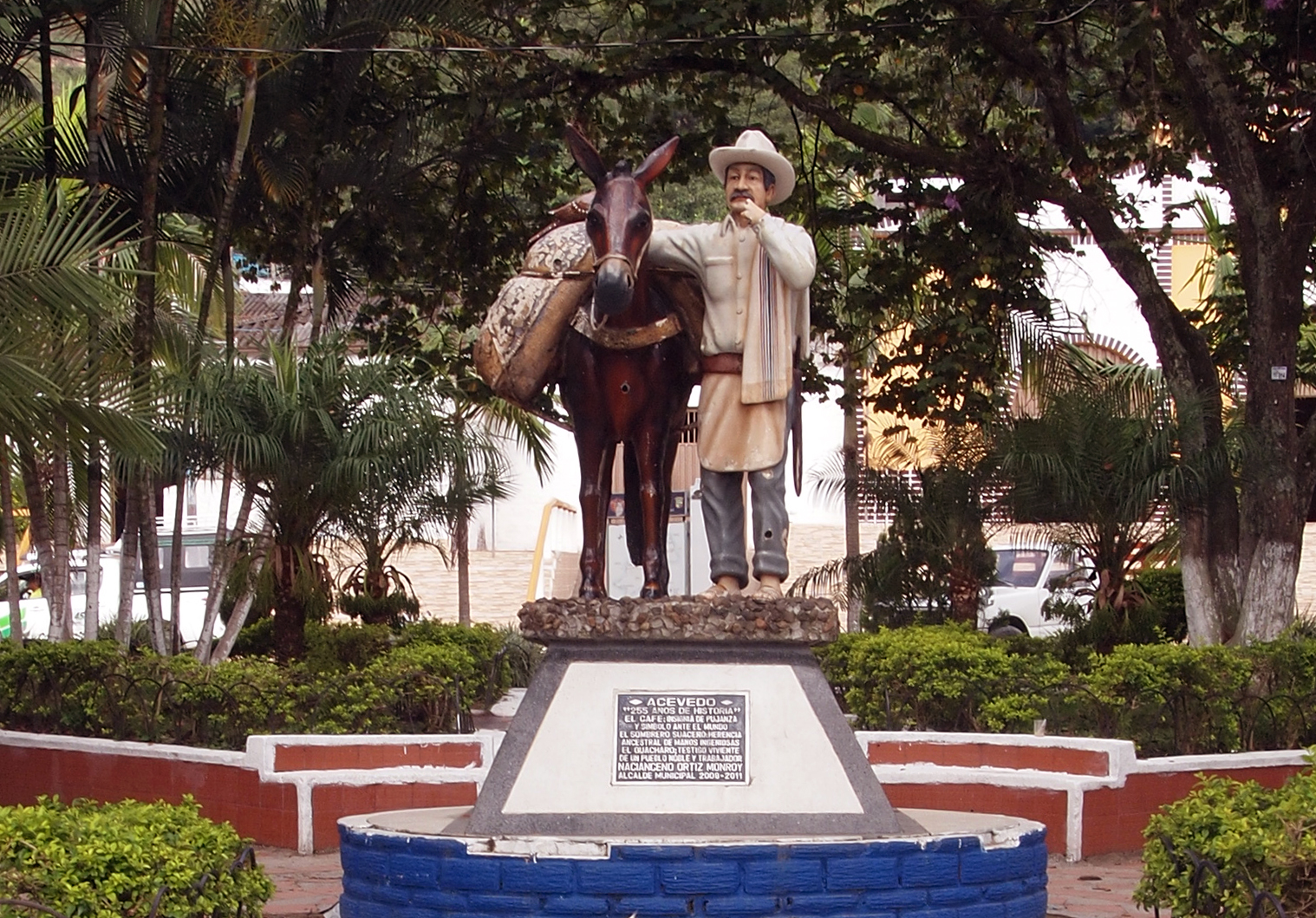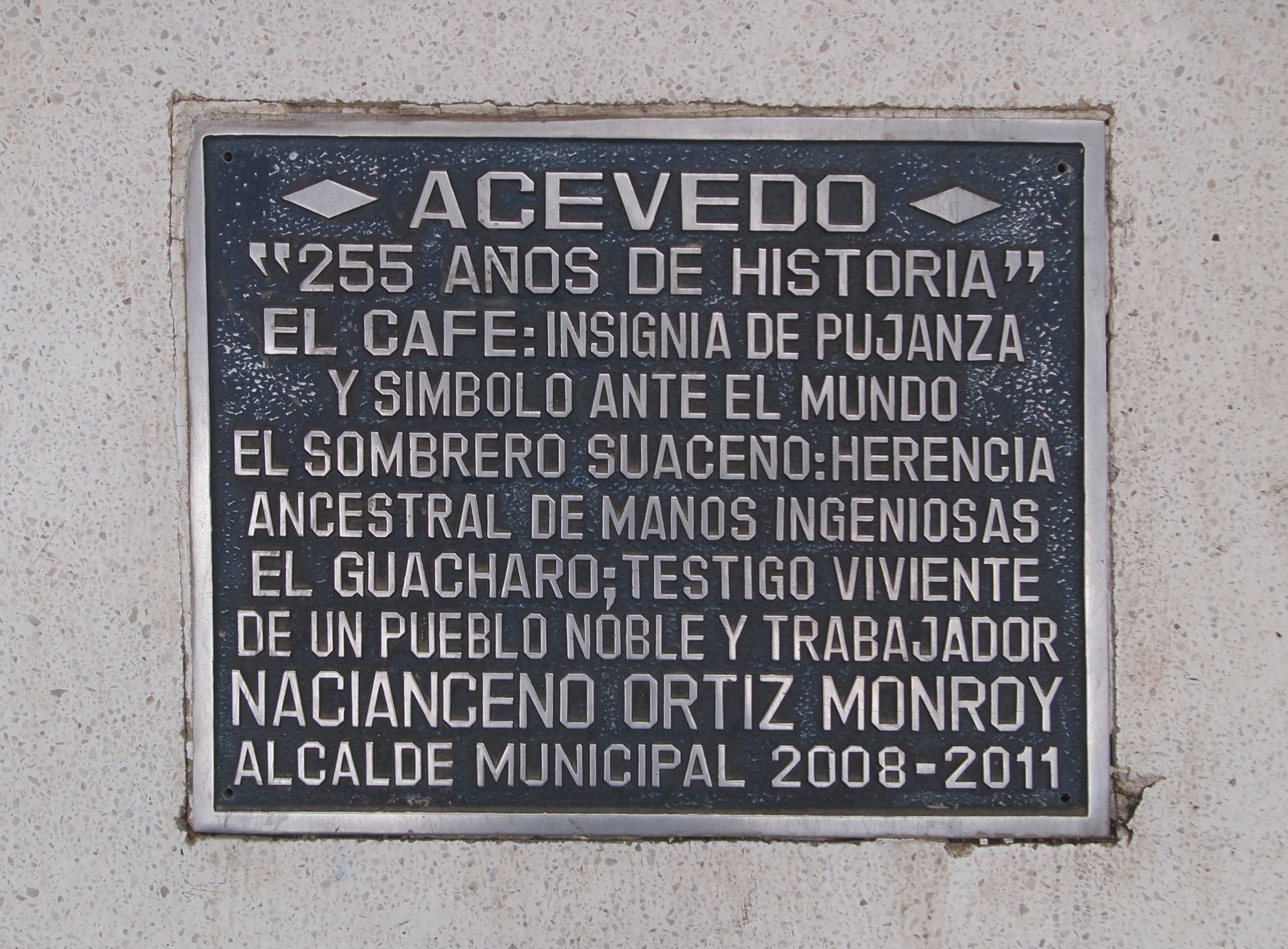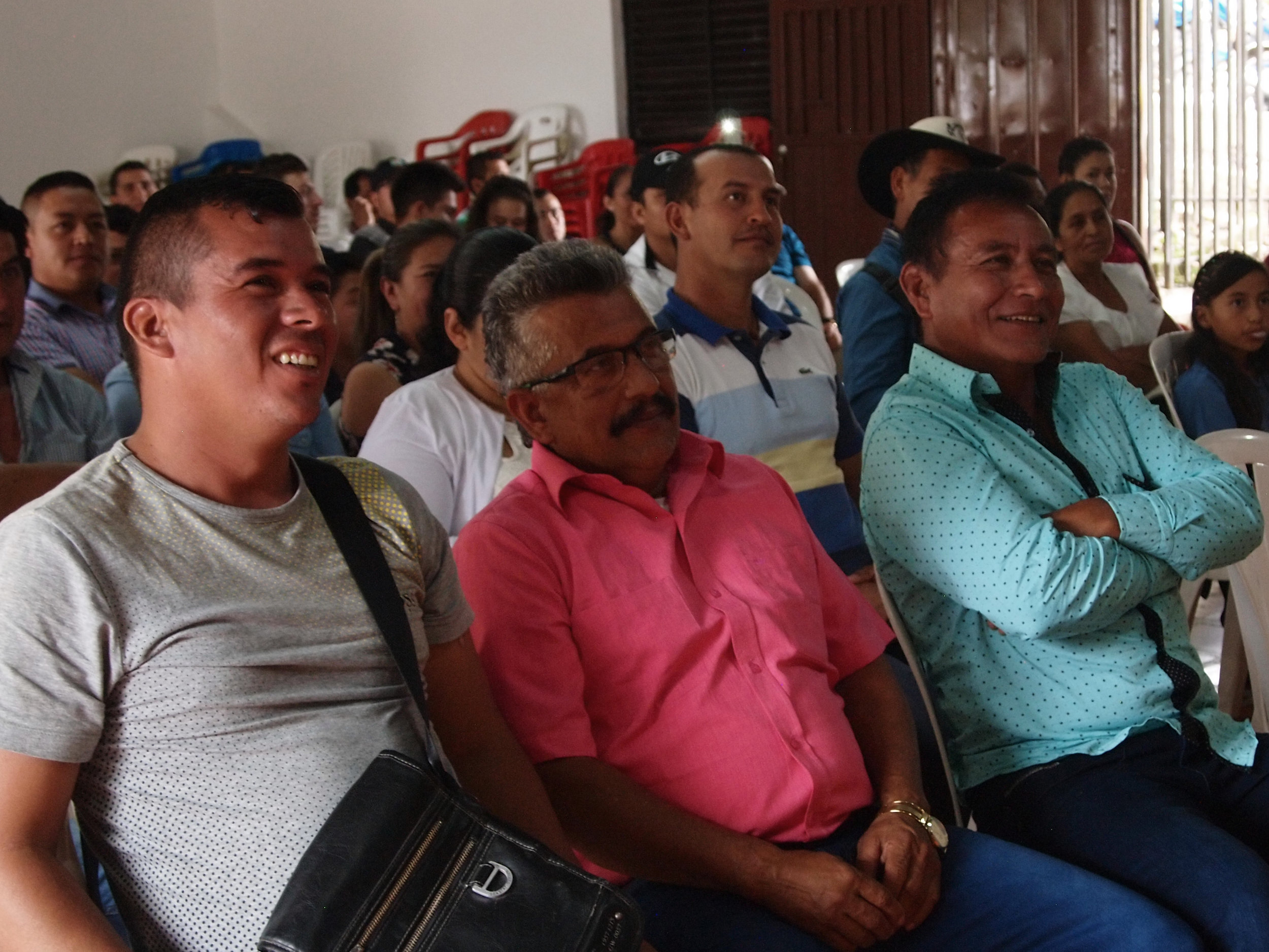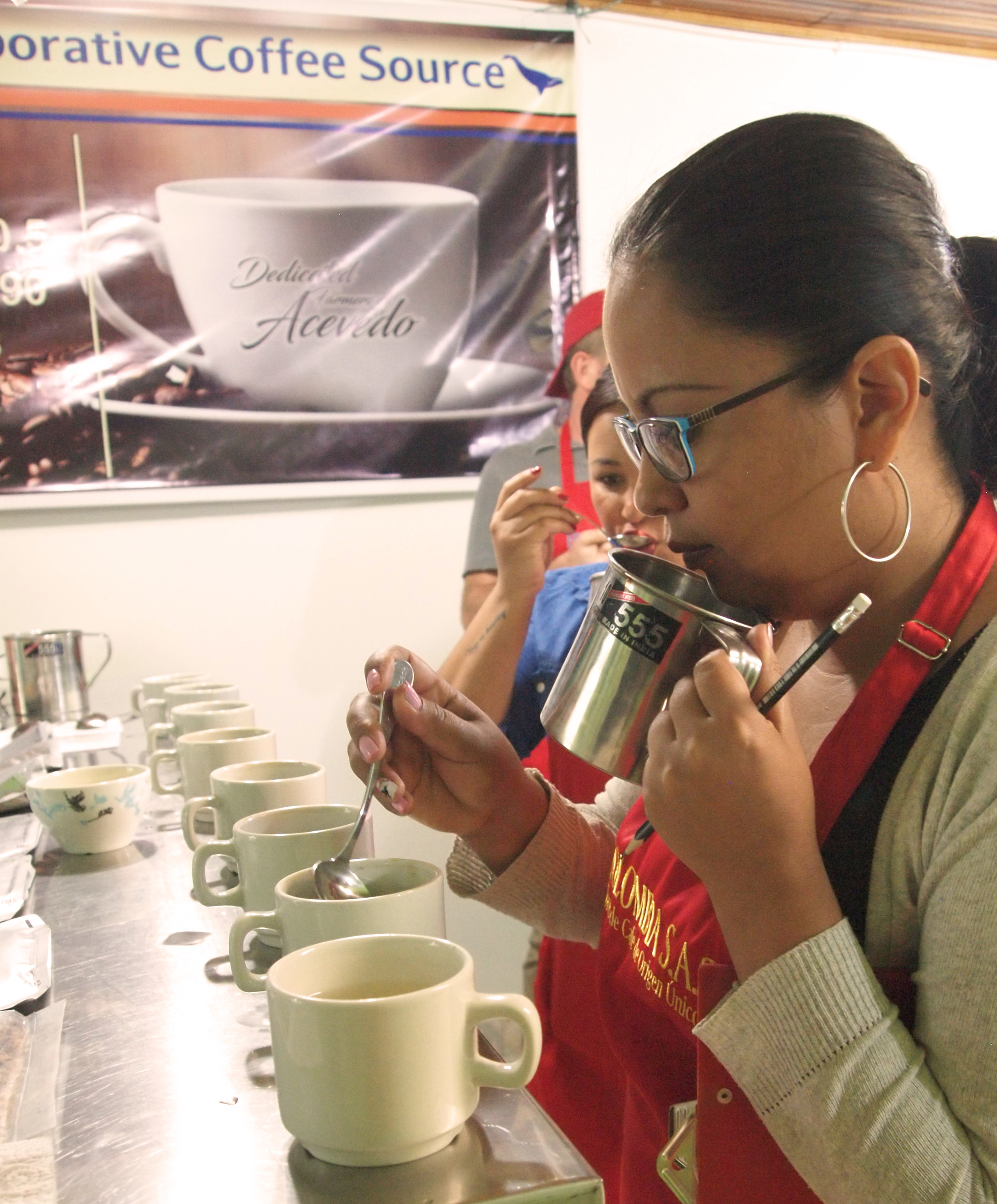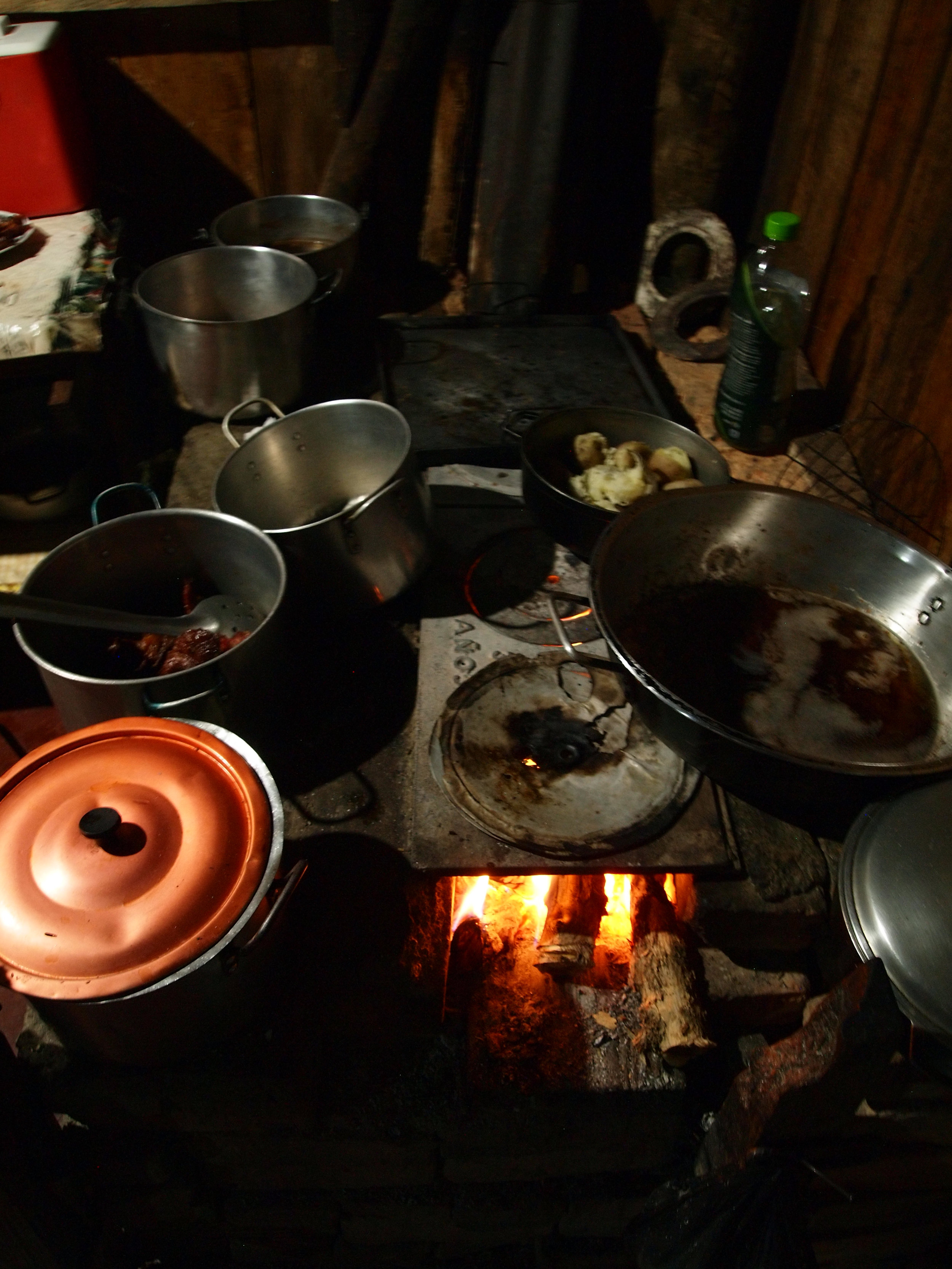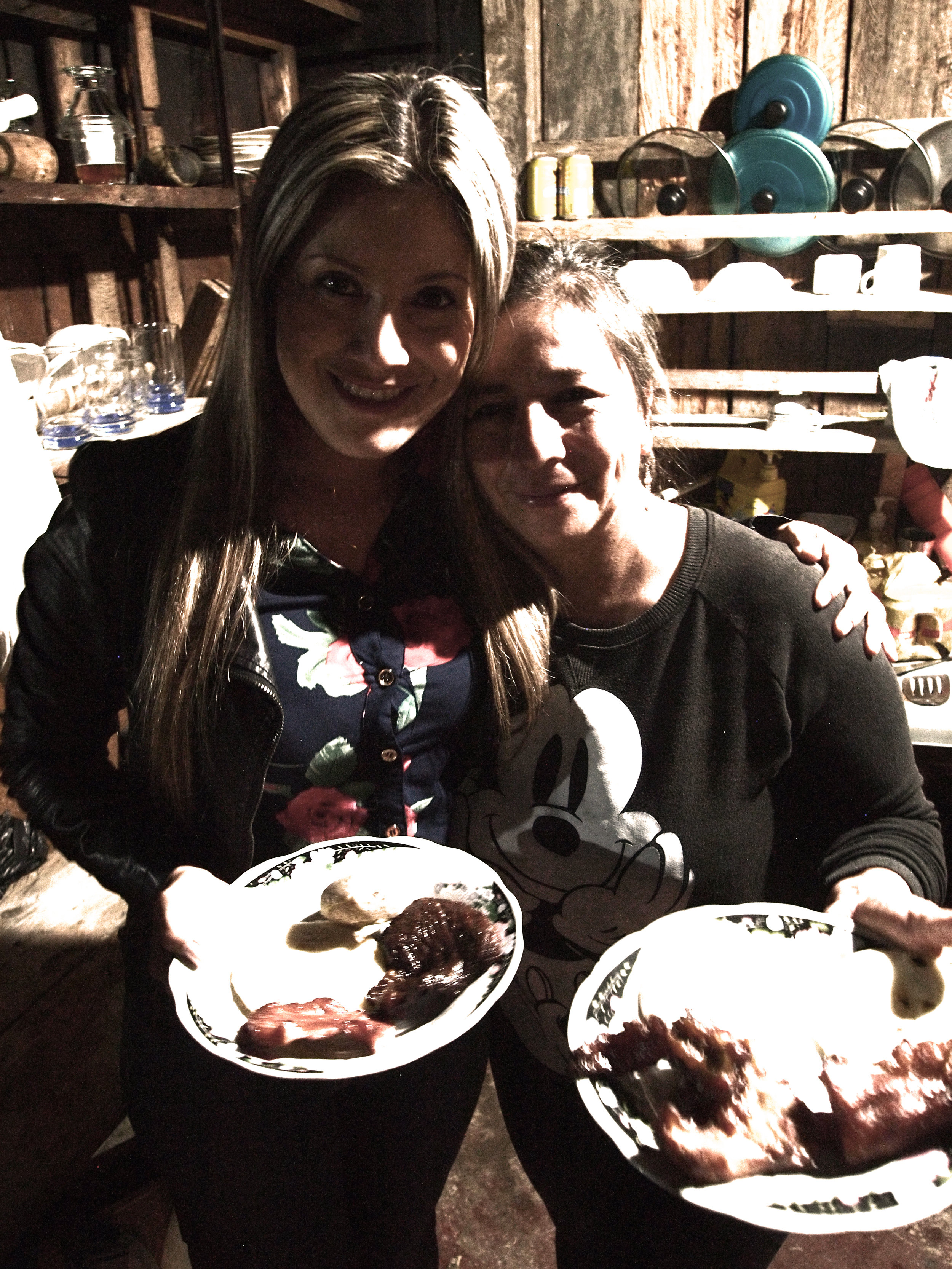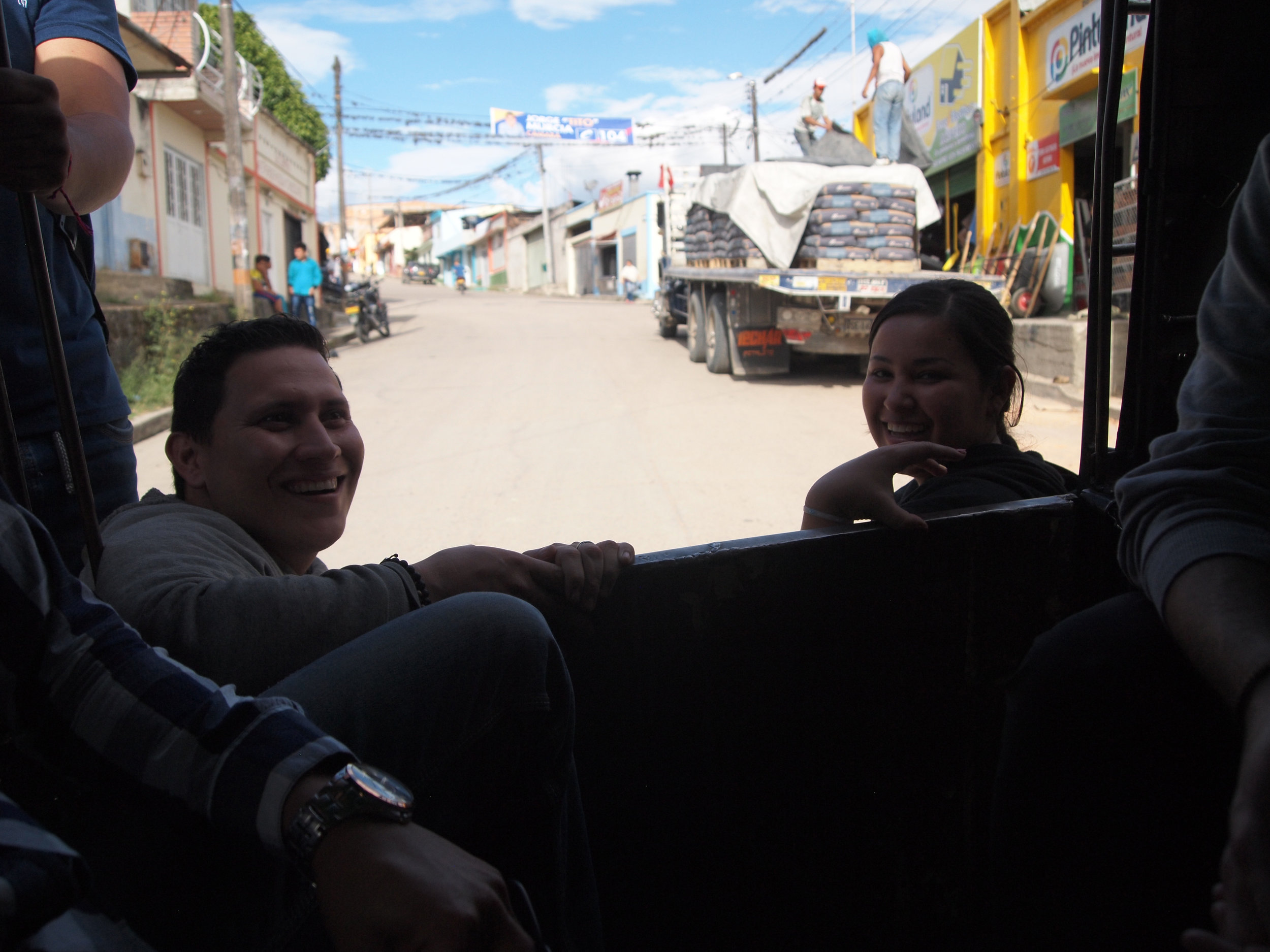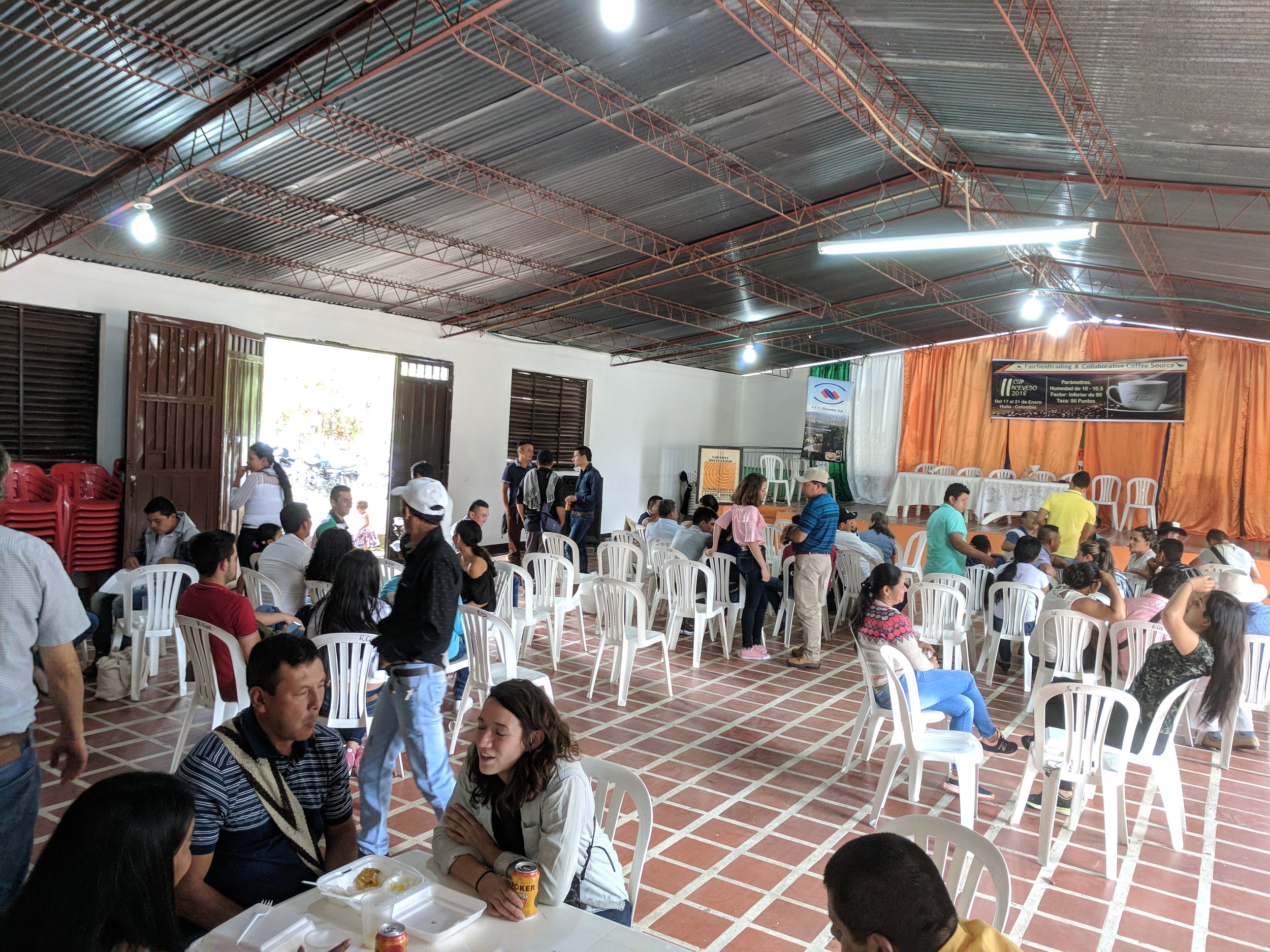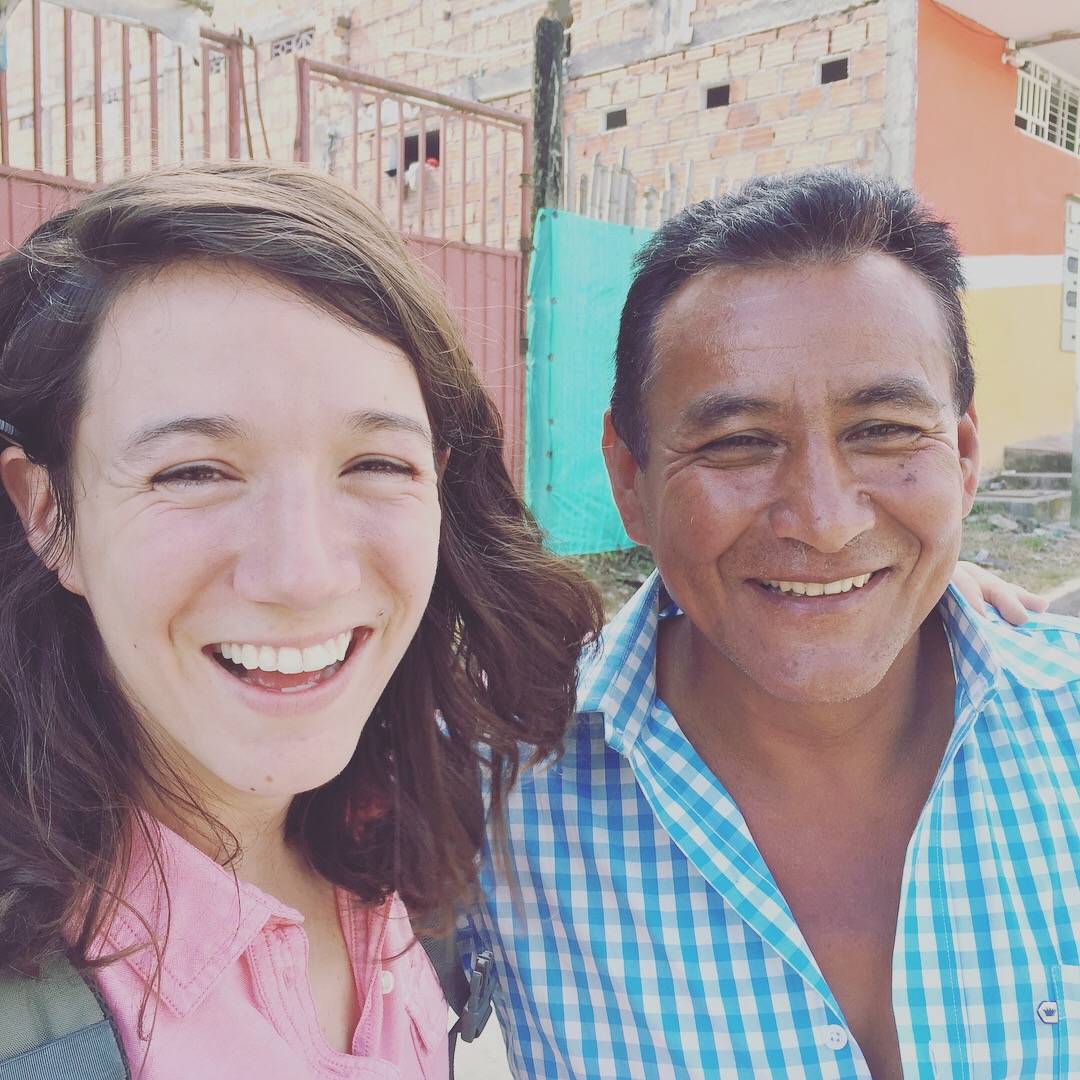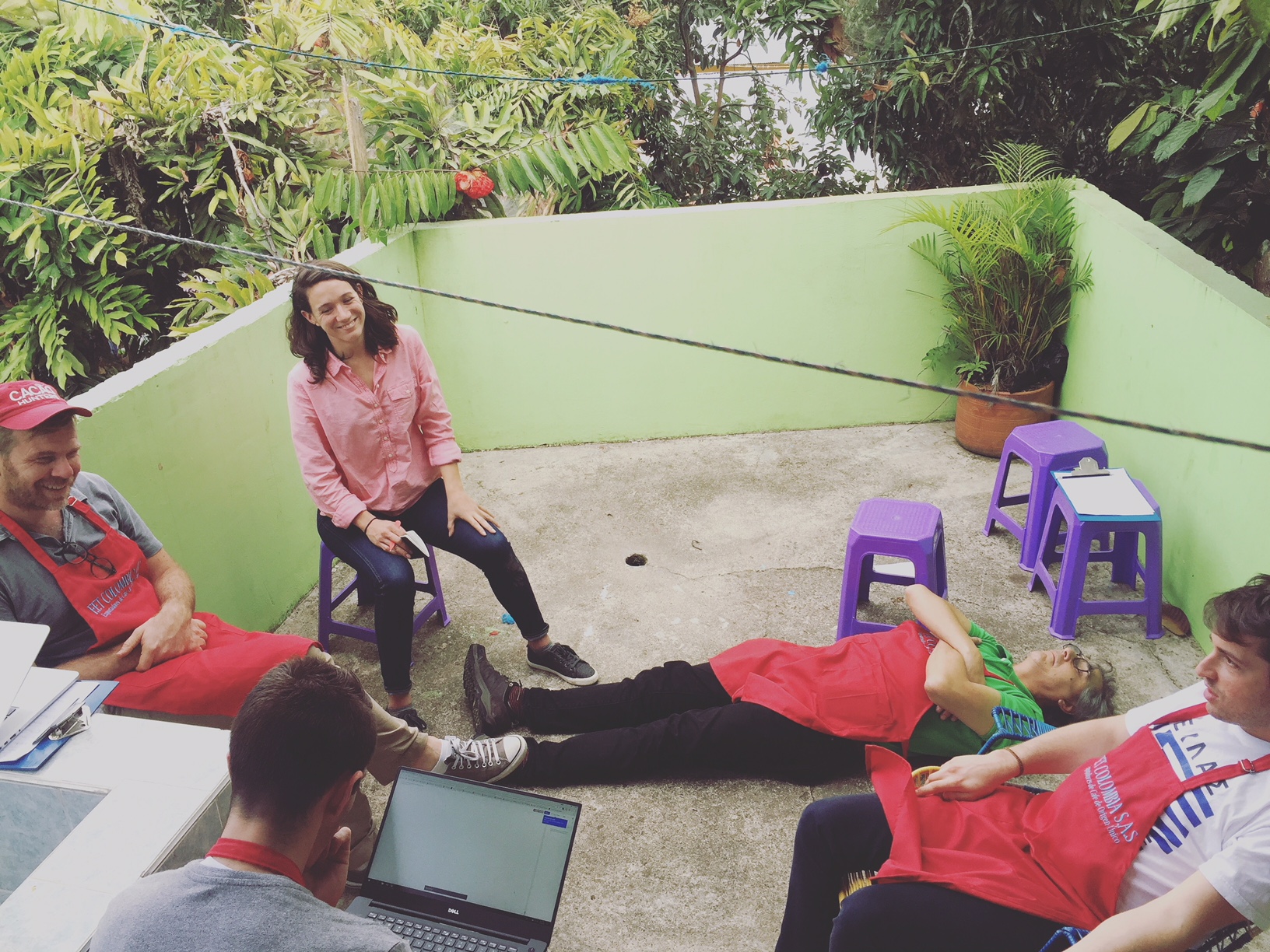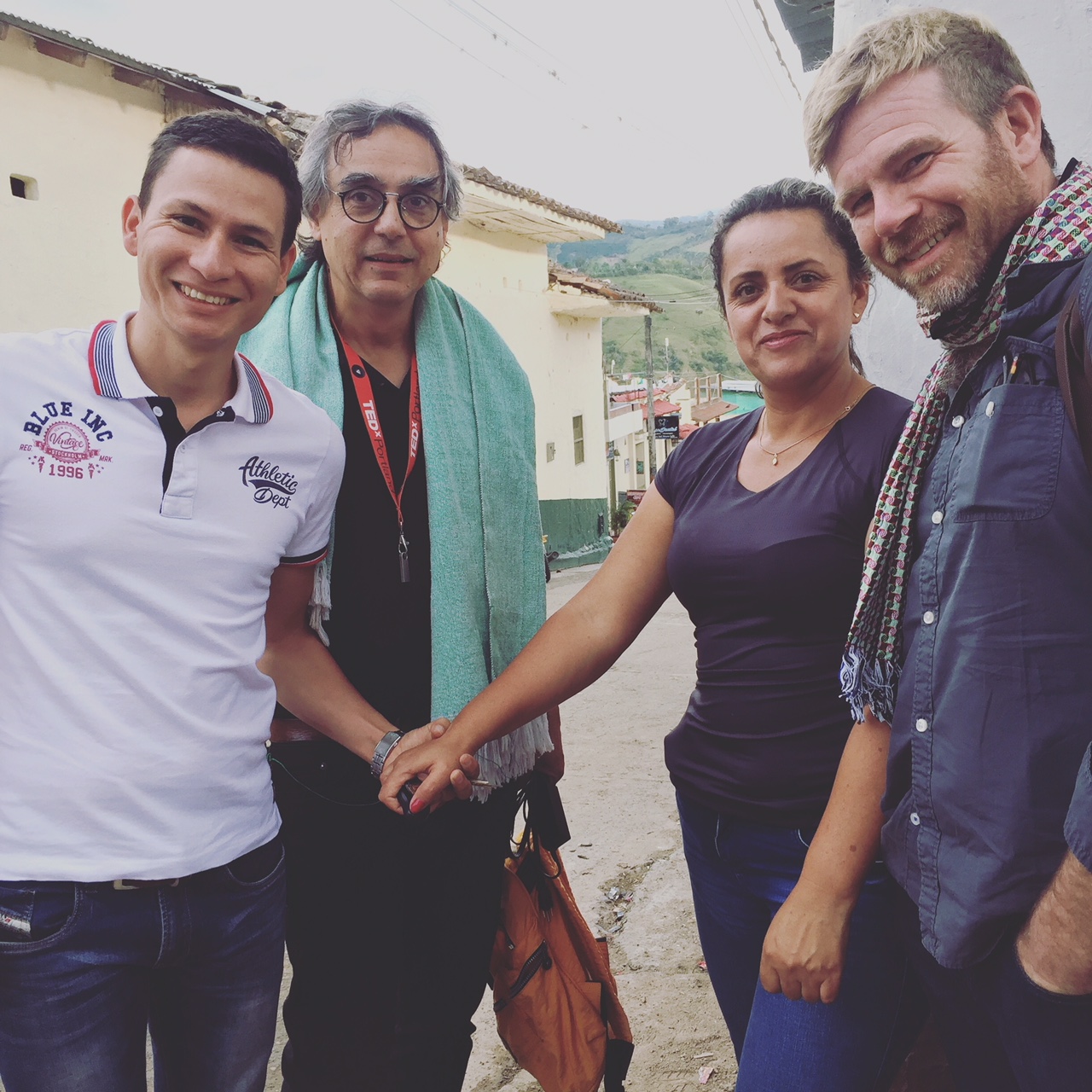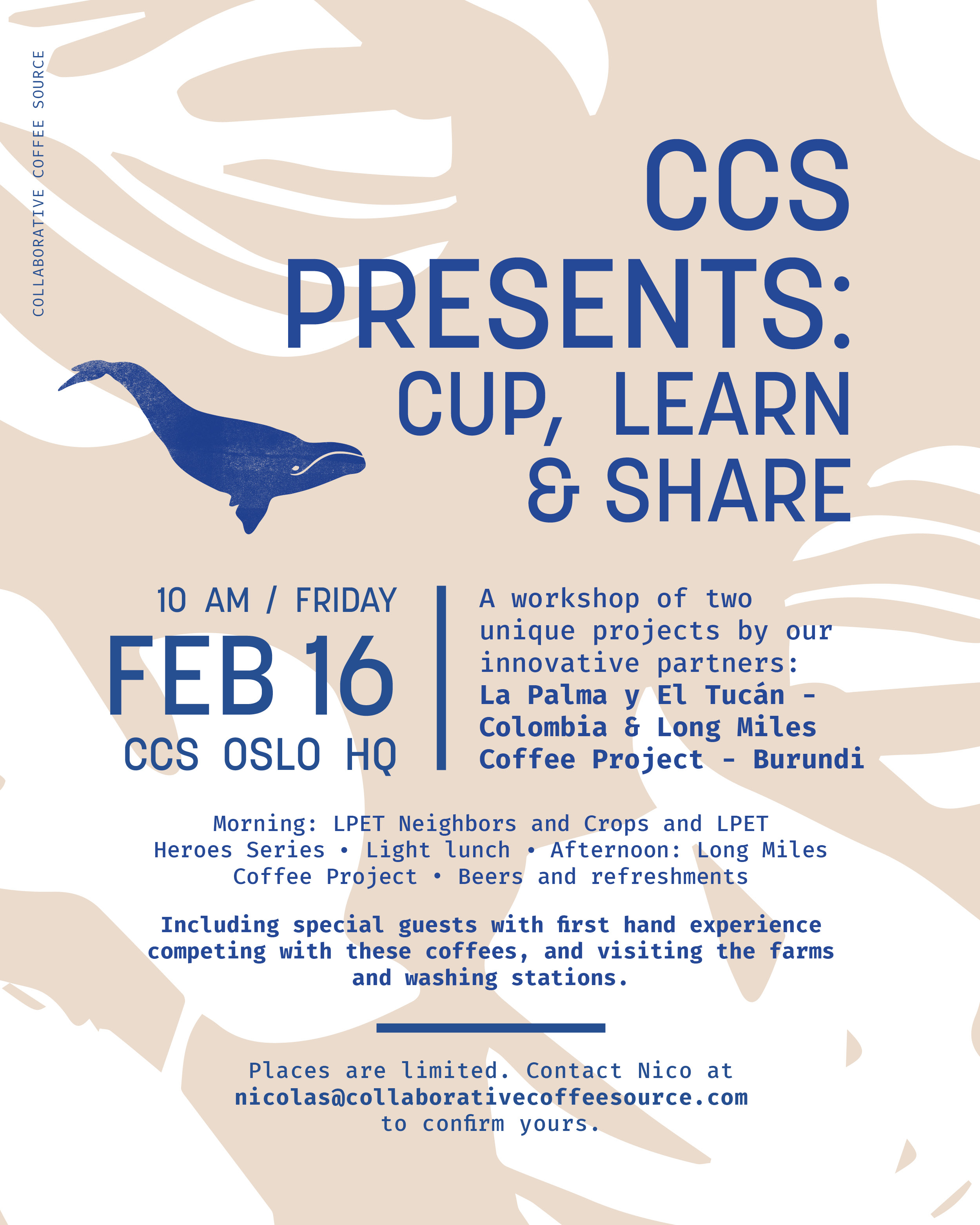Por Astrid Medina
Mi finca Buena Vista está ubicada en el municipio de Planadas en el corregimiento de Gaitania, Tolima, a una altura de 1.780 a 2.000 metros sobre el nivel del mar. Las variedades son Caturra, Colombia y Castillo. El área total de la finca es de 15 hectáreas de las cuales hay 13.5 sembradas en café. Mi café es cultivado, recolectado, beneficiado y secado con el mayor de los cuidados para no afectar la calidad.
La calidad es nuestra mayor motivación para que siempre se realice un excelente trabajo con nuestro equipo.
Mi viaje en el café ha sido mi vida
Mi abuelo paterno, caficultor; mi padre, caficultor; y la familia de mi esposo, caficultores. El café siempre ha estado anexo a mi vida. Cuando yo cumplí 29 años mi padre Aureliano Medina fue asesinado. Fue así como la finca Buena Vista fue heredada por mis tres hermanos menores y yo.
Dos de mis hermanos nos fueron vendiendo su parte al correr de los años. Ahora, Buena Vista es de mi esposo, mi hermana menor y mía.
No ha sido fácil. Es una lucha constante ser caficultor. Es el precio, es el clima, las variedades, la mano de obra etc. Pero es una pasión, un arte del cual nunca terminaremos de aprender.
Empecé a producir café de especialidad en el año 2014 cuando Federación Nacional de Cafeteros y Nespresso lanzaron un programa llamado LH TIME, o cosecha tardía; eso fue solo para café variedad castillo y consistía en recolectar el café bien maduro o uva. En nuestro caso, lo recolectábamos cada cuatro semanas para obtener esa maduración perfecta en esta variedad, obtuvimos un cupo de 5.000 kilos de café pergamino seco logrando un sobreprecio de $ 300.000 de más, lo cual nos ayudo mucho para hacer inversiones en nuestra finca y para implementar más procesos para así obtener mejor calidad y poder mejorar el pago a nuestros trabajadores.
También encontramos una motivación muy interesante para seguir produciendo café de especialidad y así poder mejorar la calidad de vida de nuestra empresa.
En el año 2.015 muy motivados se realizaba en el país Taza de la Excelencia y decidimos participar. El concurso fue el 13 de marzo. El café se presentó en diciembre y enero. Ese fue un café de traviesa, así ganamos el primer puesto. Este concurso cambió nuestras vidas. No solo nos ratificó que producir café de calidad valía la pena sino que se debe trabajar con esfuerzo y dedicación. Hacer las cosas bien siempre nos lleva a la excelencia.
Nos dio a conocer en el mundo del café de especialidad, nos ayudó a salir del anonimato, a que nuestra región fuera visitada y mucha gente se interesara en probar y comprar café de la zona. Eso ayuda mucho en una región golpeada por la guerra para que los productores mejoren sus condiciones de vida, y puedan invertir en sus empresas cafeteras para mejorar el pago a sus trabajadores.
El café de especialidad ha cambiado mi vida y la de mi familia de una manera positiva. Además de las mejoras de infraestructura y mejor pago a la mano de obra, nos dio la oportunidad de viajar fuera del país, de conocer nuevas culturas, de distinguir personas que han venido a visitarnos y a enseñarnos a interactuar con ellos. Realmente, el café nos une.
Ha mejorado nuestra calidad de vida, el café de especialidad nos ha permitido dar estudios a nuestros hijos, sostener a mi hija en su universidad en Bogotá. Me ha devuelto la seguridad, las ganas de trabajar, de soñar, de reír, de viajar, de aprender etc.
El papel de la cafetera
El nombre de mi esposo es Raúl Antonio Duran; mi hija, Dayhana Alejandra Duran, tiene 19 años y estudia Ingeniería Ambiental. Terminó sexto semestre en la Universidad El Bosque y mi niño Raúl Alejandro tiene 9 años termino cuarto de primaria.
Mi esposo es Médico Veterinario y yo soy Tecnóloga en Producción Agrícola. El gusto que siempre hemos tenido por el campo y el legado que había dejado mi padre fueron cosas valiosas para empezar un proyecto de vida.
Nosotros siempre hemos trabajado en café. Antes de heredar nuestra finca trabajábamos en una cooperativa de caficultores. Mi esposo es agente de compra y yo en mi tiempo libre le colaboro en la parte de análisis físico. Esto también nos ha ayudado mucho para aprender sobre el café.
Mi esposo es un hombre muy financista y un excelente administrador que me ha dado la oportunidad de participar, de opinar, de aprender. Eso nos ha ayudado mucho para crecer y trabajar por un mismo ideal, trabajamos en equipo.
Ser una mujer en el sector del café colombiano es un rol muy importante y de mucho compromiso, trabajo, dedicación y sobre todo de mucha pasión por lo que se hace. La equidad de género es muy importante, en la empresa cafetera siempre hay trabajo para todos los miembros de una familia y es muy importante empoderarnos de lo que nos gusta hacer.
El hombre y la mujer siempre se complementan. Los dos son importantes y son los encargados de hacer que todos desarrollen un trabajo importante en cada familia.
Planes para el futuro
Mis planes a futuro son muy ambiciosos: quiero convertir mi finca en una granja especial donde no hagamos daño al medio ambiente, donde existan más variedades de café, donde haya muchos árboles ornamentales y frutales, donde nunca falten las verduras, tener un manejo de aguas residuales donde todo esté en regla. Poder ofrecer a mis trabajadores capacitación y sobre todo capacitarnos mucho más nosotros.
Tener un medio de transporte aéreo para bajar el café recolectado de los lotes más altos y lejanos al beneficio y así poder facilitar el trabajo.
Sueño con ver a mis hijos hablando inglés, terminando universidad y enamorados del café.
Estoy muy orgullosa de mi finca, es el legado que dejó mi padre, pero estoy más orgullosa del café que nos produce este lugar tan maravilloso y privilegiado. Poder ofrecer un café de especialidad me llena de satisfacción, de gratitud, de orgullo de saber que estamos poniendo un granito de arena en la construcción del país que soñamos.
Un abrazo especial
Astrid Medina Pereira

